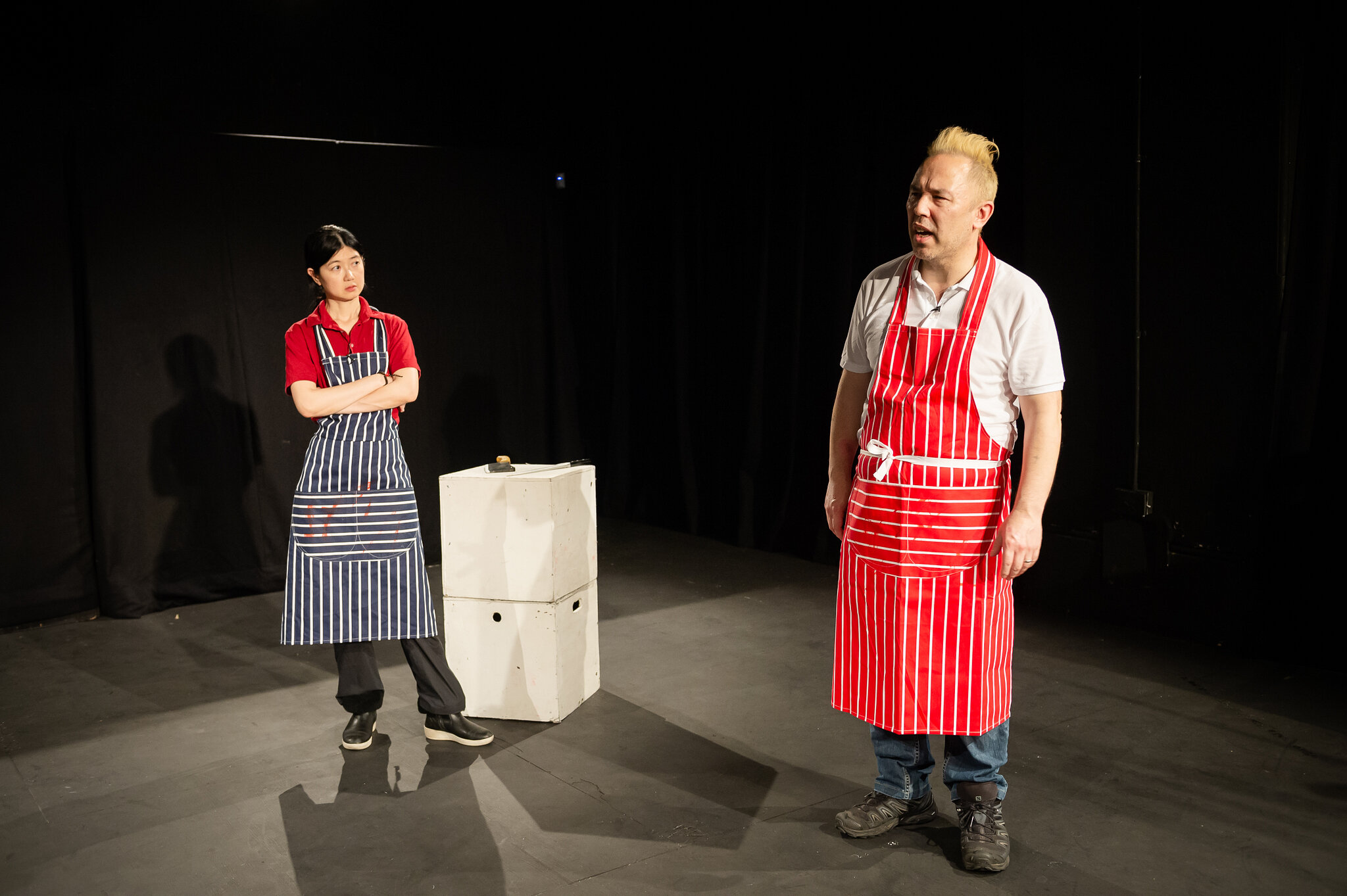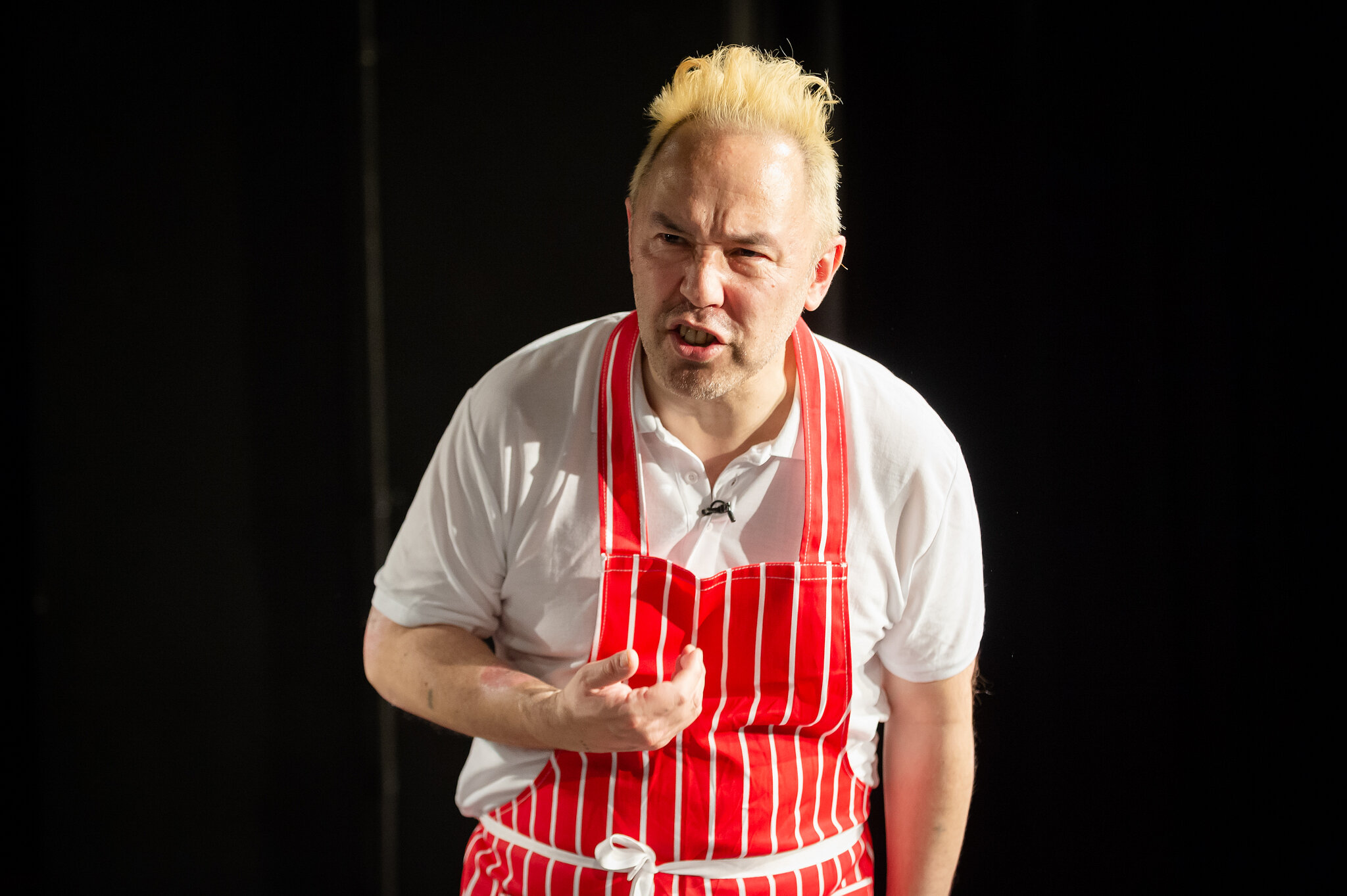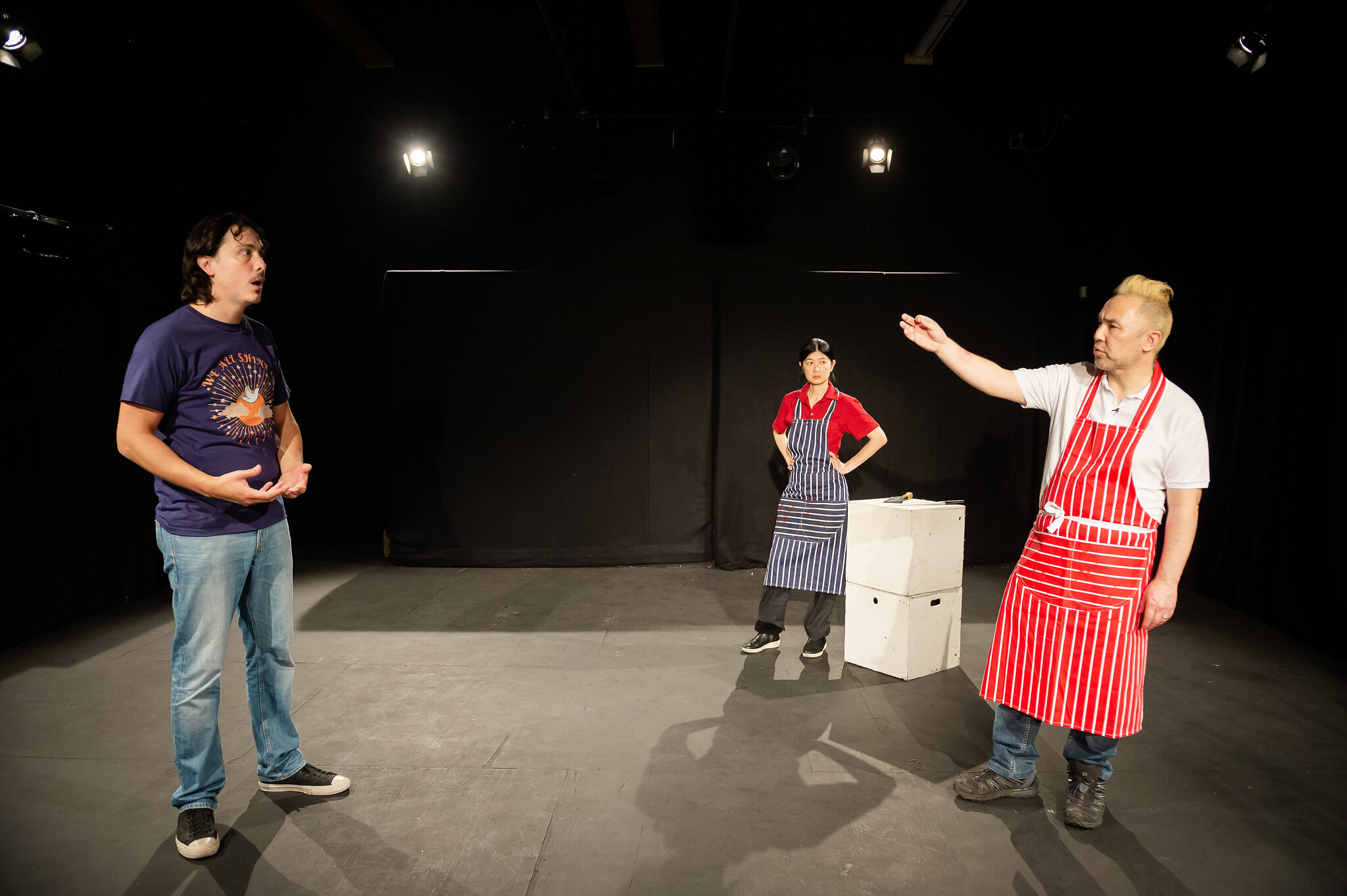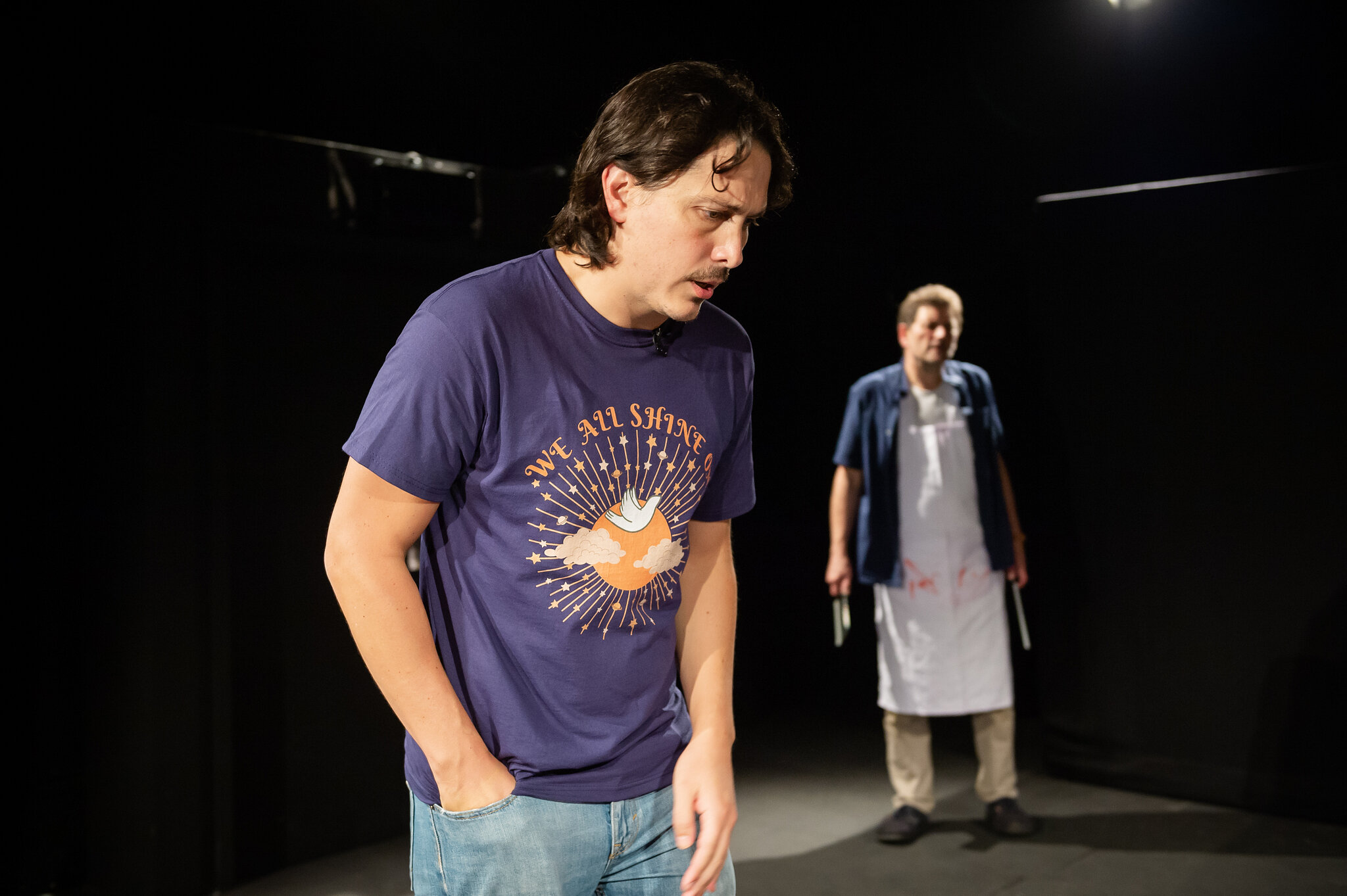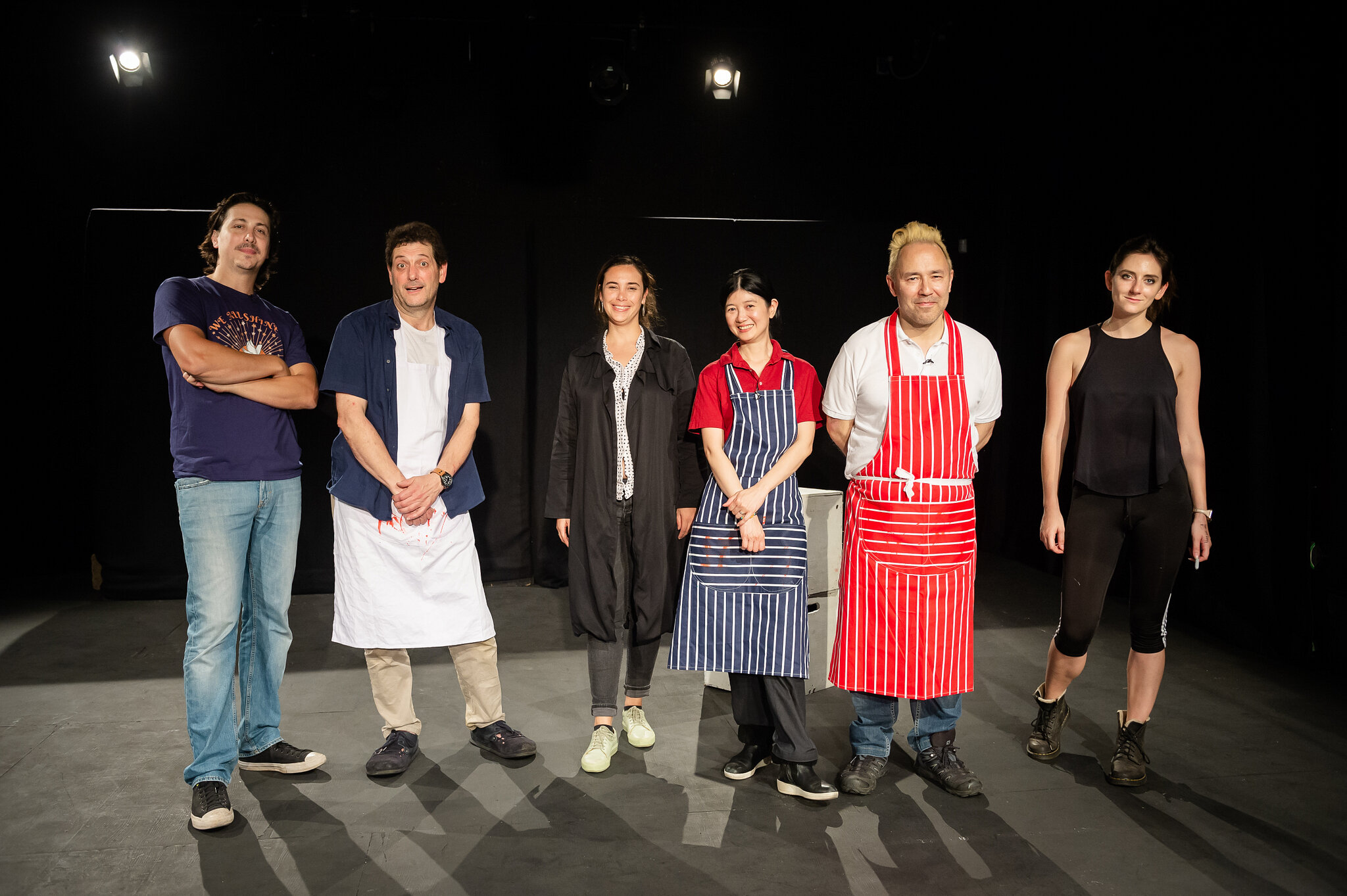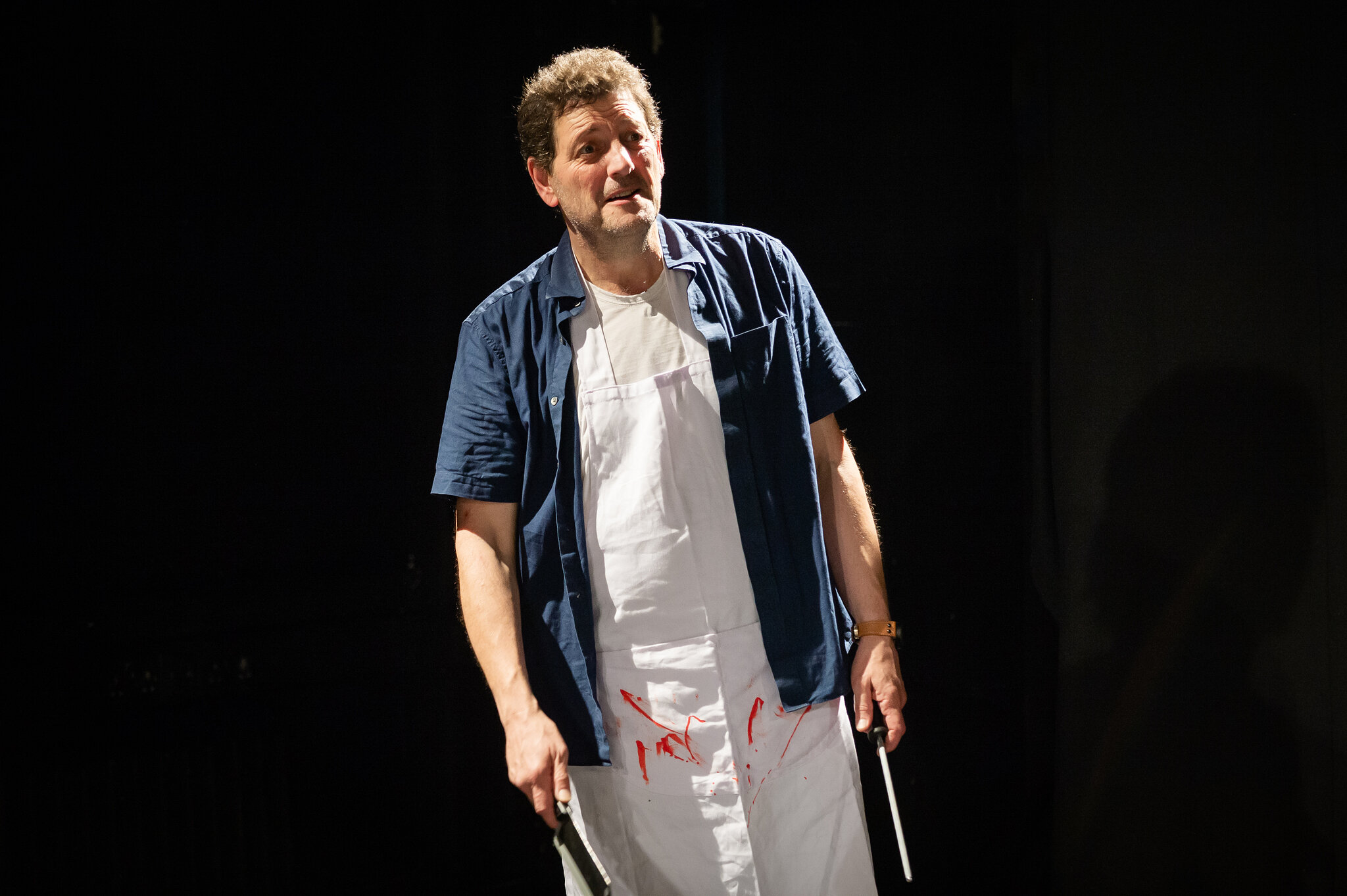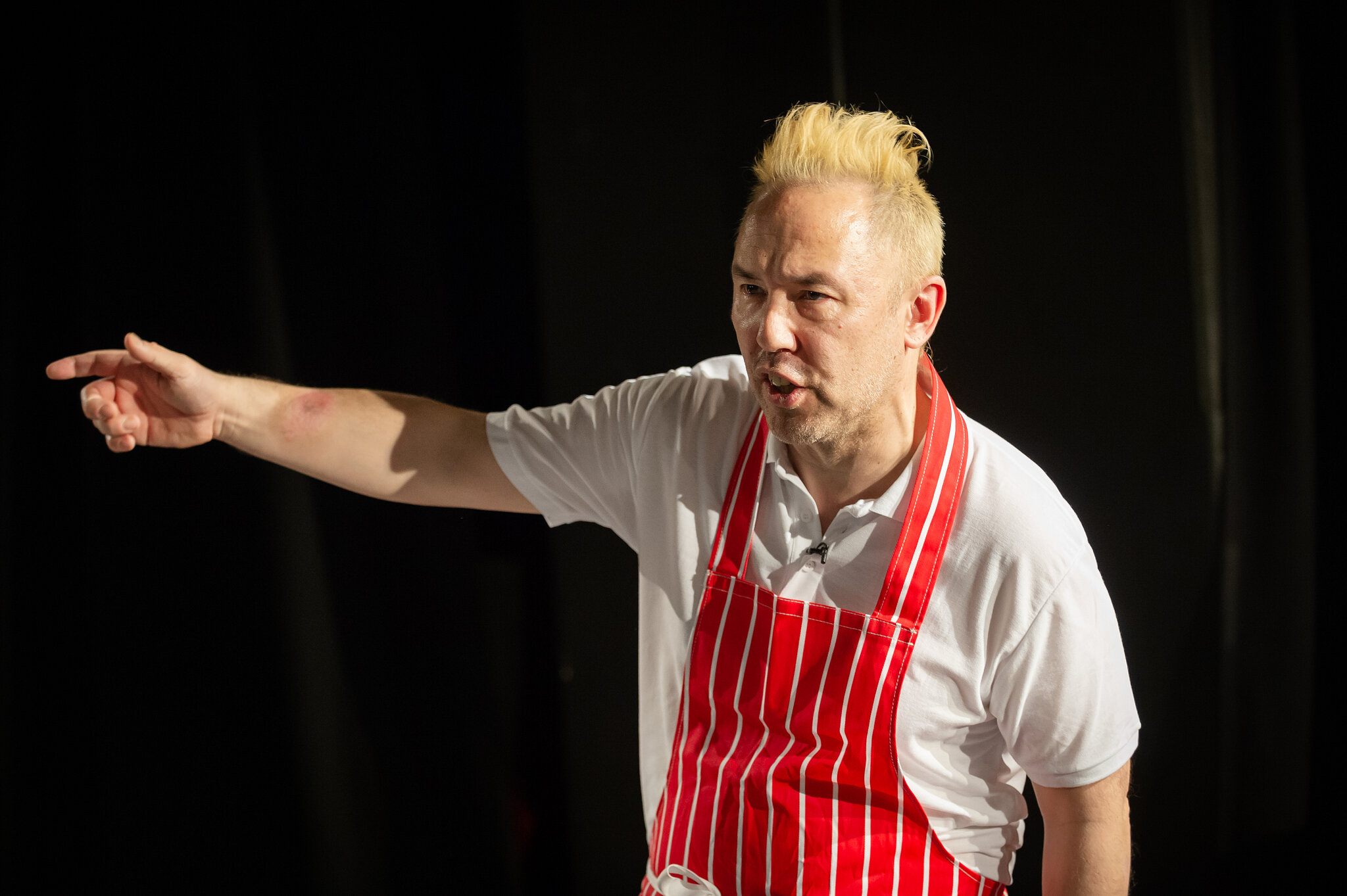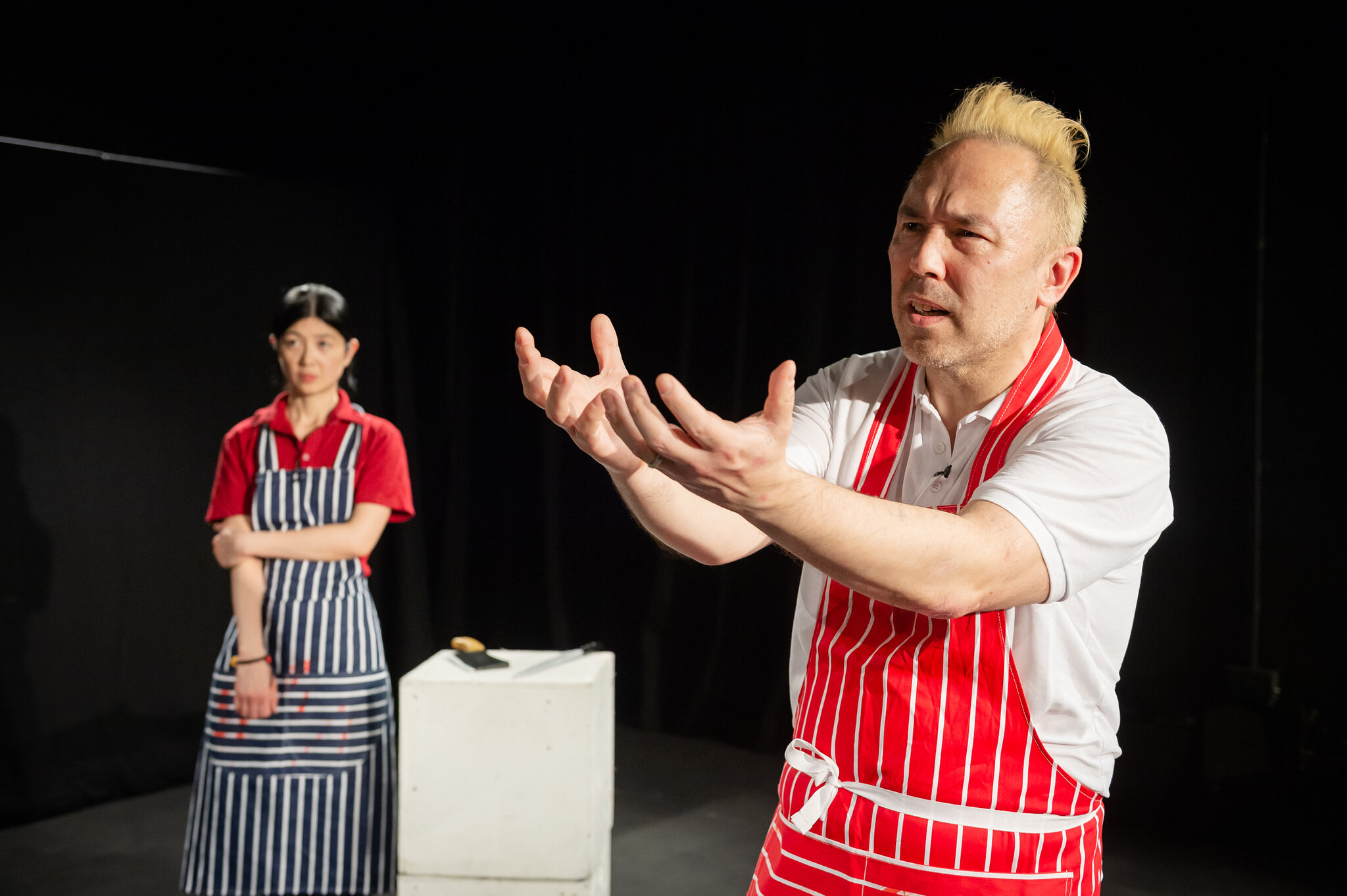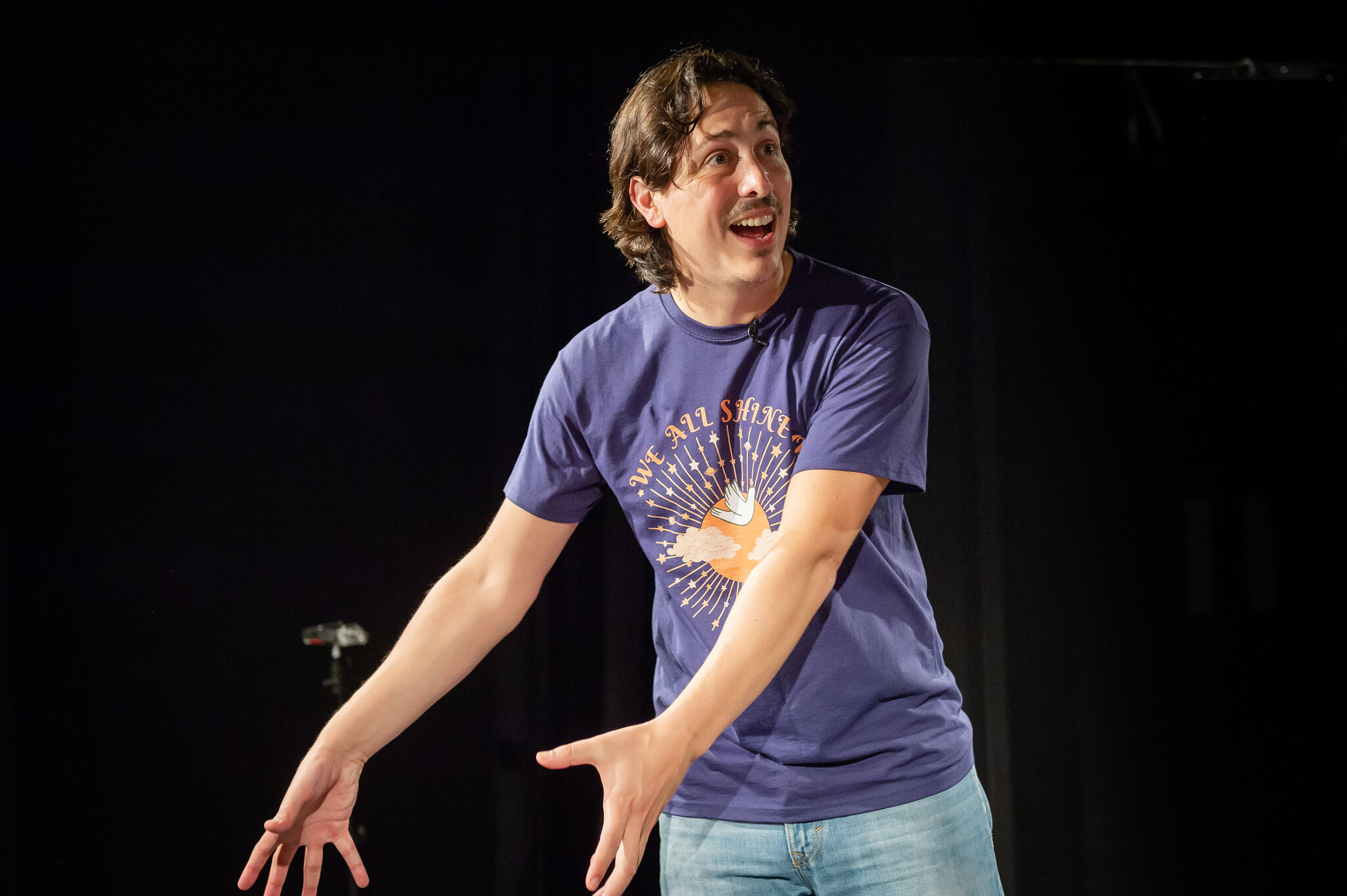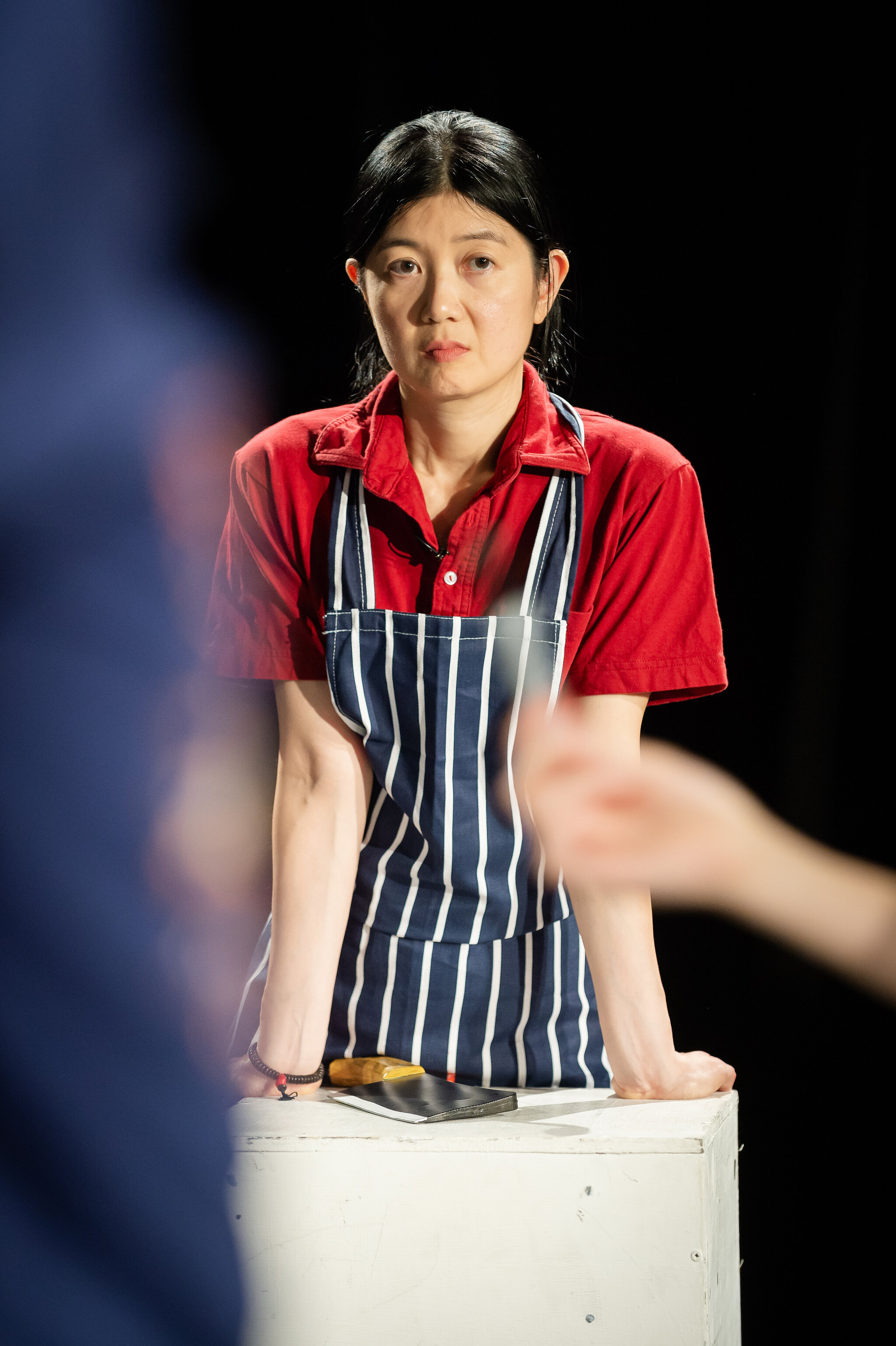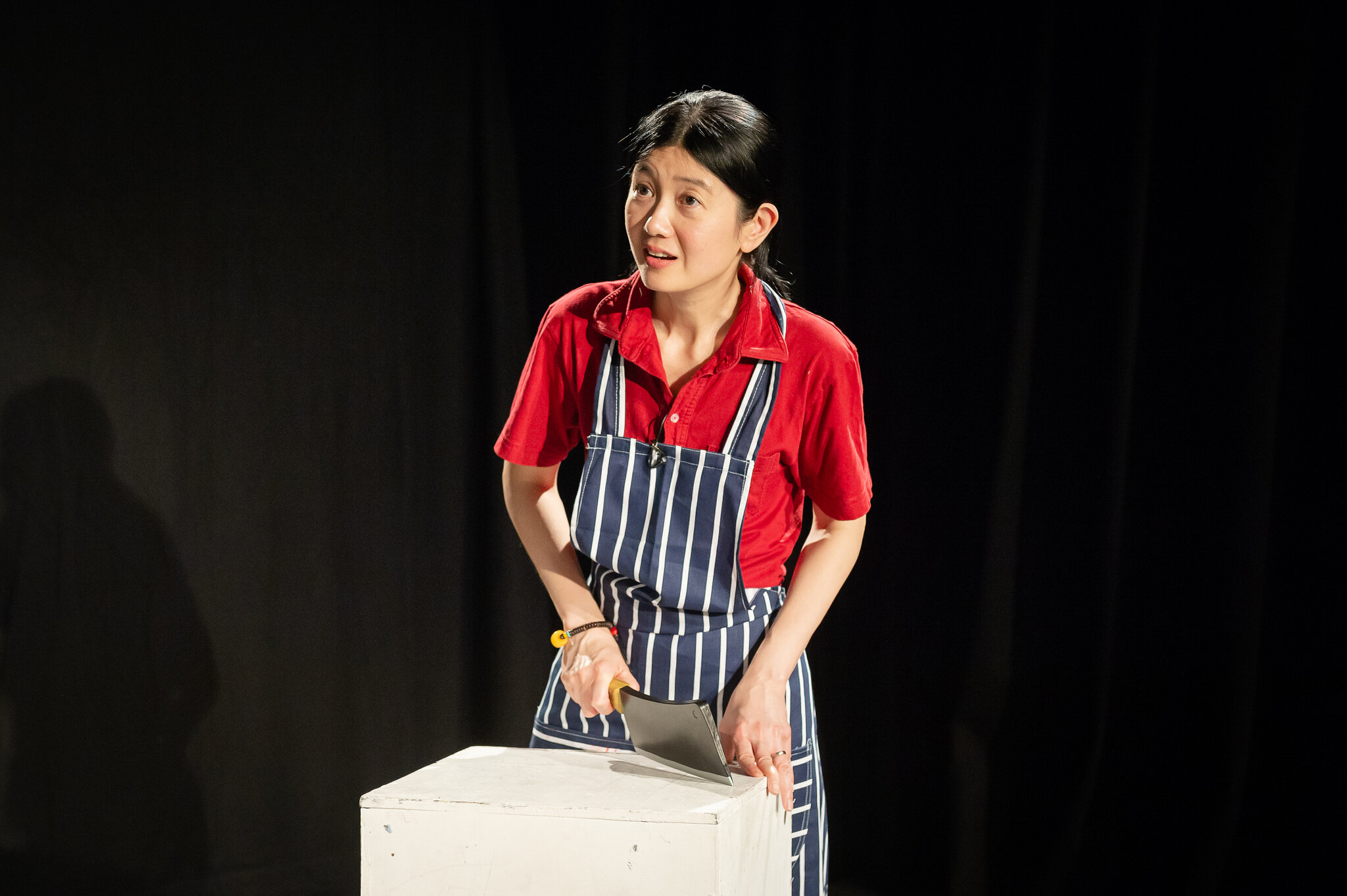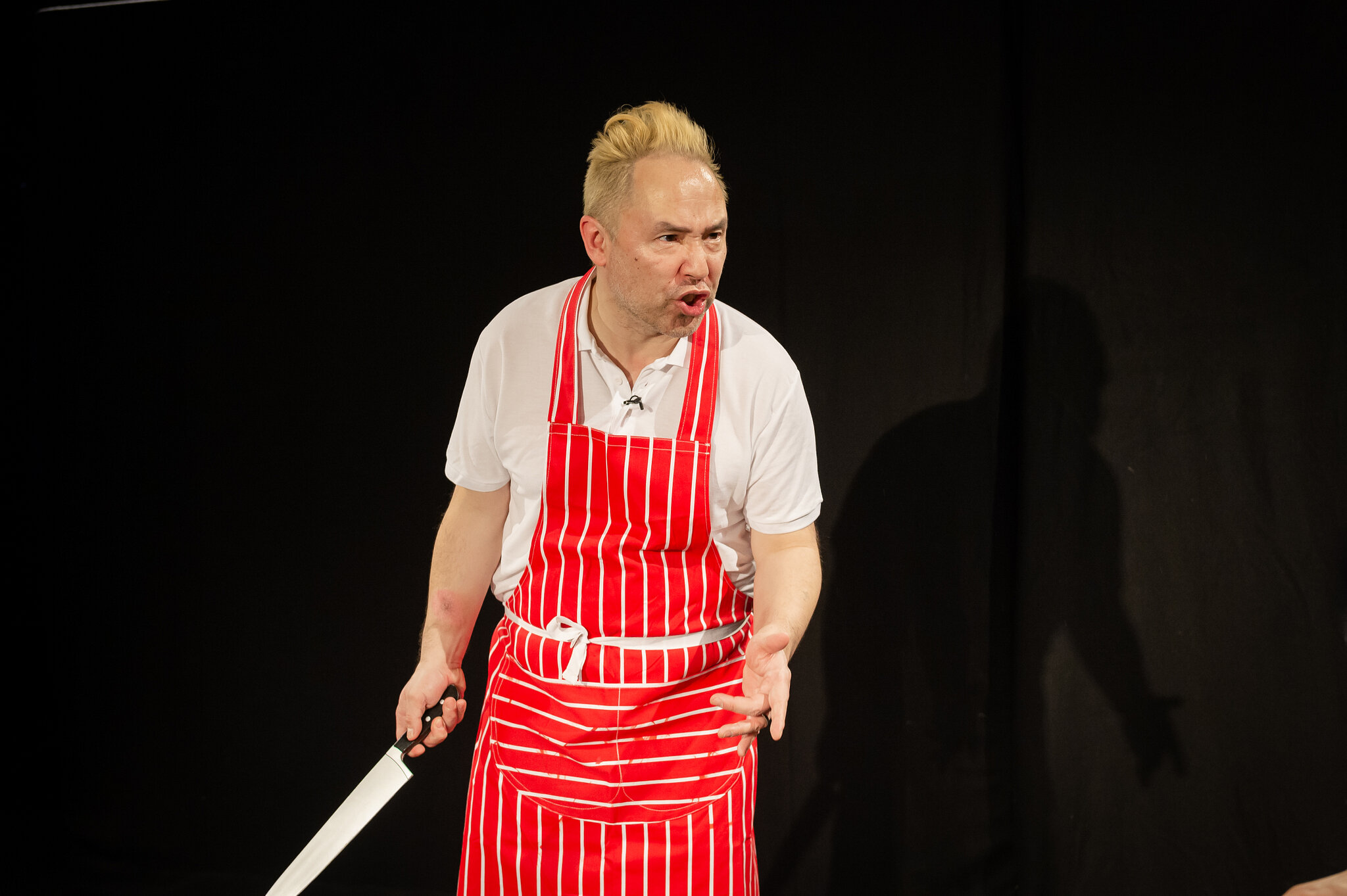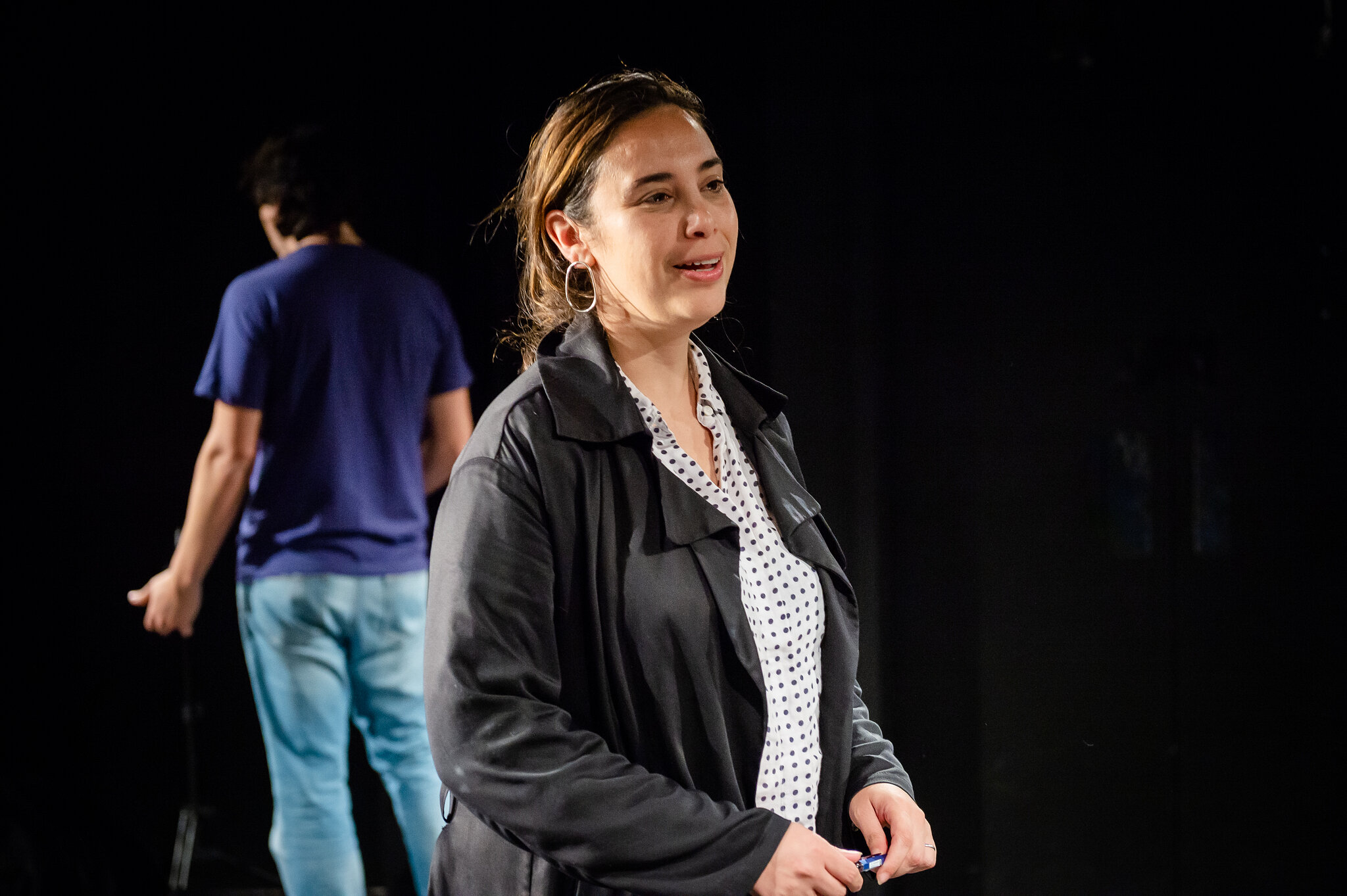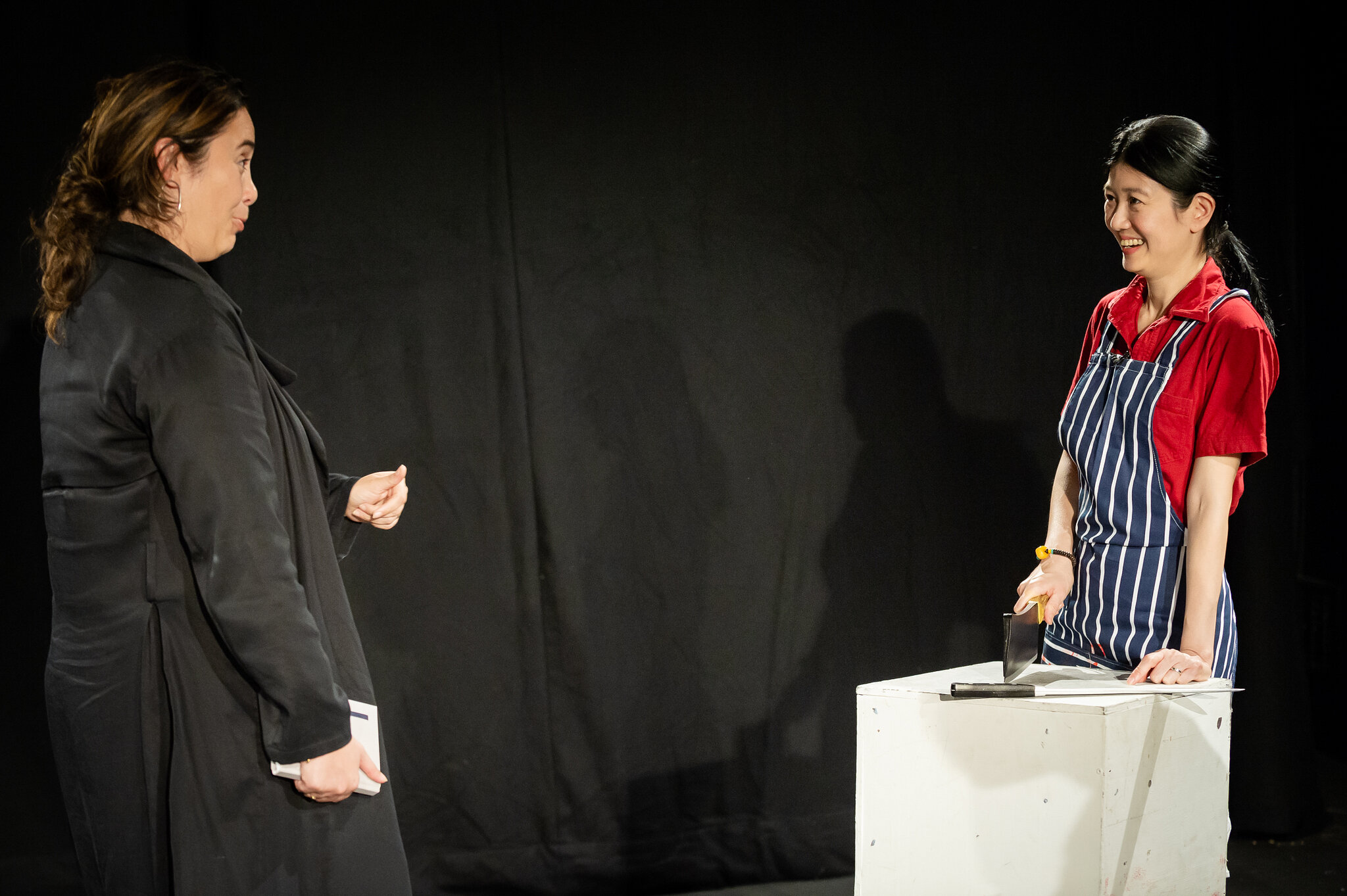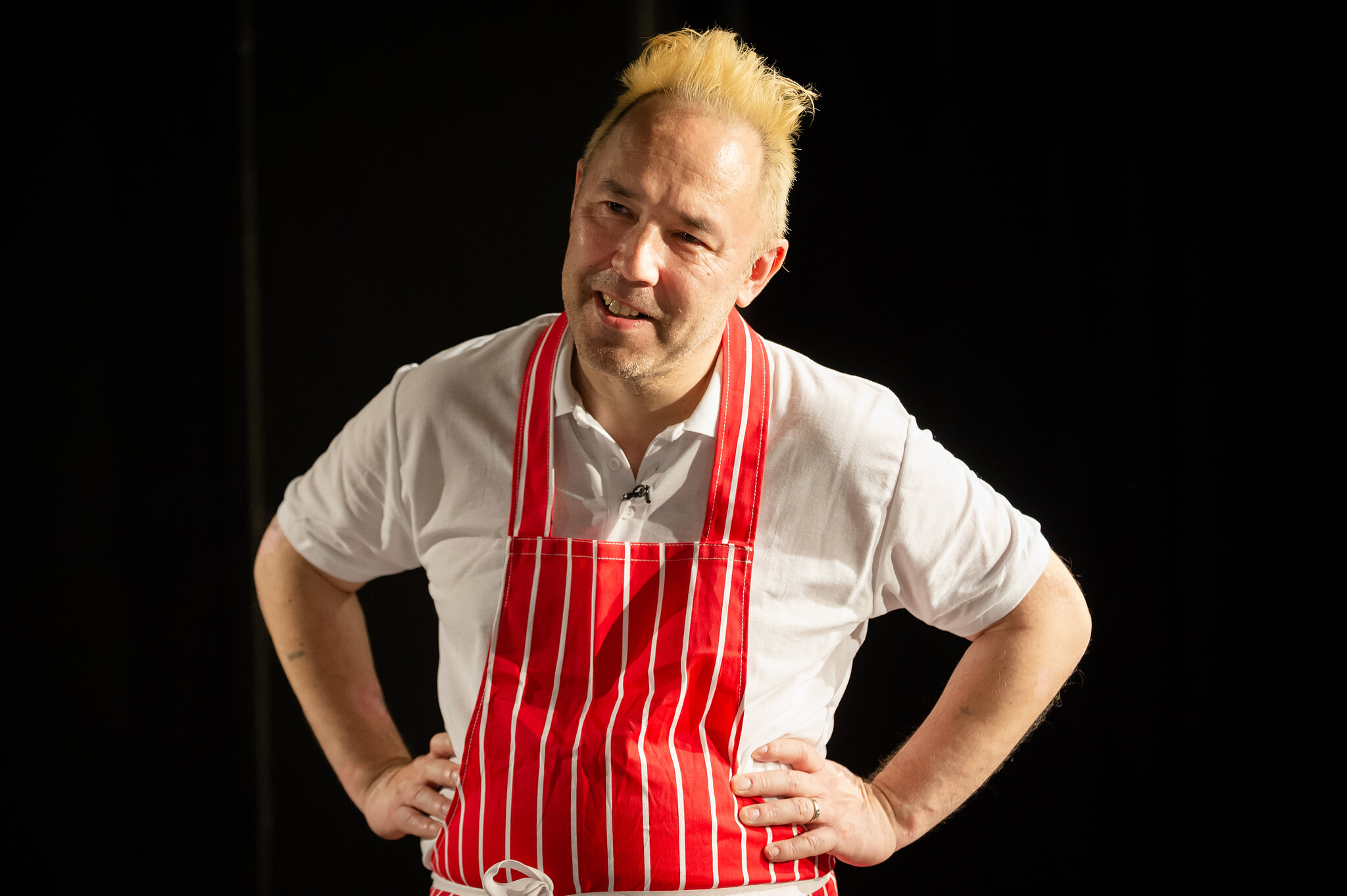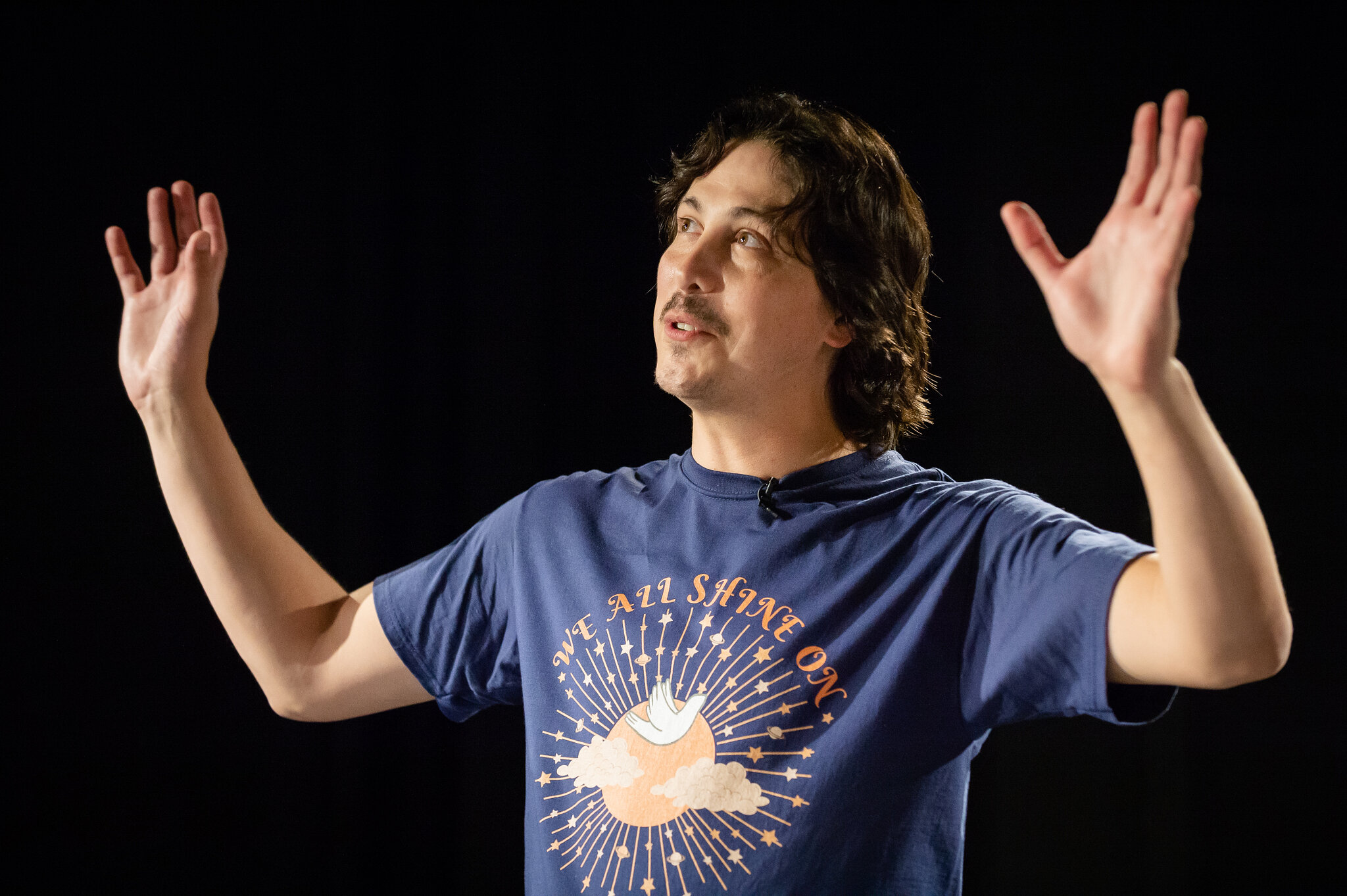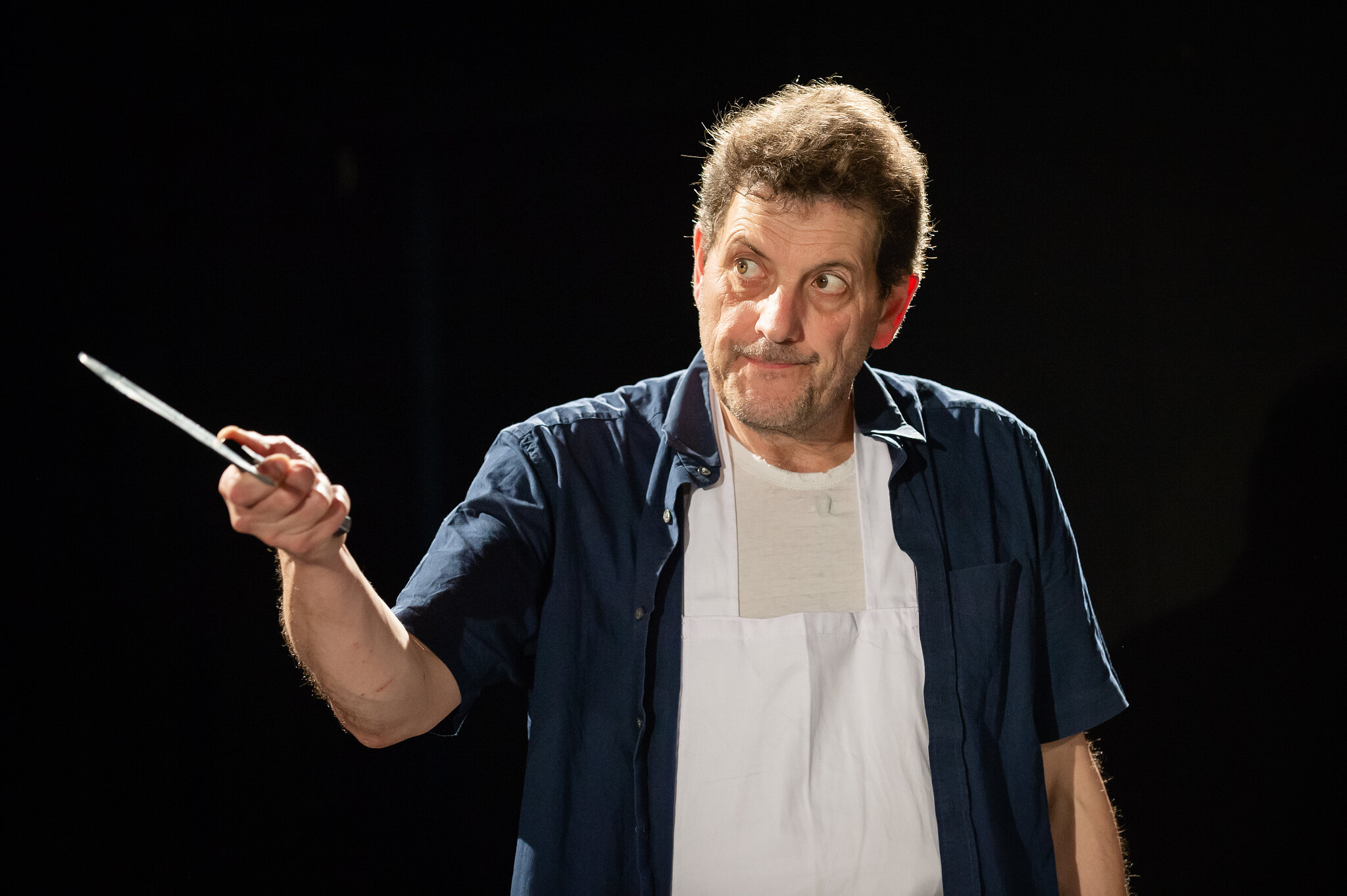The Concert
by Ulises Rodríguez Febles
Translated by William Gregory
Genre: Fantastic-magical realism
Key Scenes: Scene Seven, pp. 27-33 (3M + 1 dog); Scene One, pp. 3-5 (1F, 1M + 1 statue); Scene Nine, pp. 36-41 (2F, 4M + 1 statue)
Number of characters: 12 (7M, 5F - and 1 dog) Age recommendation: 13+ (strong language)
Country: Cuba
Original language: Cuban Spanish
Translation 1: English translation by William Gregory
Translation 2: English adaptation by Gigi Guizado (set in Florida, USA)
Description:
Set late in 2000, Havana, Cuba, fifty year-old Johnny wants to get his old rock band, The Crusaders, back together for a reunion performance. None of them are interested or able and his attempts open old wounds. Johnny is left alone in front of an audience and the statue of his idol, John Lennon. He must face the music.
Winner of the 2004 Virgílio Piñera Award for best Cuban play.
The Concert was first performed in English at the Royal Court Theatre in 2004, directed by Indhu Rubasingham and performed by Allun Corduner, Zita Sattar, Cherry Morris, Mossie Smith, Trevor Cooper, Ewan Hooper, Roddy Maude-Roxby, Alan Williams and Jimmy Akingbola.
It was later broadcast on the BBC World Service, and staged in 2008 by Upstream Theater, St Louis, Missouri.
The play was originally written in Spanish (Cuban).
+ DETAILS
Play Title in Original Language: El Concierto
Author(s): Ulises Rodríguez Febles
Language(s): Cuban Spanish
Publisher: Nick Hern Books, 2004
World Premiere (in the Engl. lang.): Havana, Cuba, 2004 and Royal Court, London, UK, 2004
Translation 1 (English): William Gregory
Translation 2 (English): Gigi Guizado
Essay writer: Lillian Manzor
Education Pack Resource Writer: Almiro Andrade
Filmed excerpt director: Camila González Ortiz
+ CHARACTERS
JOHNNY – a man of about fifty; wants to reunite his old band, aka Manuel.
OLD WOMAN – rough-sleeper.
MOTHER – Johnny’s mum.
WIFE – Butcher’s wife.
BUTCHER – band member, aka Zombie.
FATHER-IN-LAW – Father to Wife, Father-in-law to Butcher.
FATHER – Johnny’s dad.
MACHUCHA – The Leader’s mum.
NURSE – carer to The Leader.
THE LEADER – band member, wheelchair bound, aka Alfredo.
THE SCORPION – band member/drummer.
YOUNG MAN – The Scorpion’s son, aka Ringo.
A DOG – The Scorpion’s dog, aka Samson
LENNON – a statue.
+ PLAY TEXT BLURB
Royal Court/NHB Award for Best New Cuban Play by an author under 35 Virgilio Piñero Prize for Best Cuban Play - 2004
A comedy about Beatlemania in Castro's Cuba - published here in both the original Spanish and in English translation.
Havana, 2000. Fidel Castro has just unveiled a lifesize statue of John Lennon. But former musician Johnny can remember a time, thirty years before, when the Beatles were not so celebrated in Cuba. He steals the statue and attempts to re-assemble his rock band. But dredging up the past only rubs salt into today's wounds.
A fascinating glimpse into the social and cultural complexities of Castro's Cuba, Ulises Rodriquez Febles' play The Concert was first performed in this English translation by William Gregory in Havana and at the Royal Court Theatre, London, in 2004.
The Concert won the 2004 Virgilio Piñero Prize for Best Cuban Play, and the Royal Court/NHB Award for Best New Cuban Play by an author under 35.
Buy the play text here
+ TRANSLATOR'S NOTE: William Gregory
El Concierto was the first play that I translated for the Royal Court Theatre. Ulises Rodríguez Febles was inspired by a statue of John Lennon that had been installed in one of Havana’s parks, and used this image to explore the link between the Cuba of the early 2000s and the legacy of earlier decades. The inclusion in the play of one of the UK’s most famous musical exports, and the tragicomic tone of the piece throughout, with an old rocker who had never grown up at the centre of the story, was an enticing combination, which led to the translation taking some interesting directions.
For the central role of Johnny, I was interested in how a man who had never grown out of his 1960s youth might speak. My research included reading interviews with the Beatles and picking up some vocabulary that was youthful in the 60s but sounded dated in the 21st century. When describing his former bandmate, the Leader, Johnny calls him ‘the hippest of the bunch’ (p. 13) who ‘dug rock’n’roll’ (p. 19).
This contrasted sharply the jaded, no-nonsense characters around Johnny, who, either because they are from a different generation (Johnny’s parent) or because they are more concerned with day-to-day survival (the Butcher, Machucha), have no time for Johnny’s head-in-the-clouds antics. The scene in the Butcher’s shop was an opportunity to explore this in the translation: there’s nothing more ‘down-to-earth’ than an animal being slaughtered offstage while Johnny dreams of stardom. Here, I used some phrases that wouldn’t be out of place in the north of England, where I’m from, such as ‘Father won’t be best pleased’ (p.9) or ‘Don’t hang about’ (p.11).
When the play was produced at the Royal Court as a staged reading, it was mainly cast with actors from the North of England, matching the style of the translation. 17 years later and I wonder if we might have made different choices with The Concert today, with less reference to the Liverpudlian origins of Johnny’s houseguest, and more to the Cuban origins of the writer. How might the translation have differed?
+ TRANSLATOR'S NOTE: Gigi Guizado
In translating an excerpt from The Concert by Ulises Rodríguez Febles into American English, the first step was deciding where to set the play. The Miami neighborhood of Little Havana, with its large Cuban population seemed a natural fit. I tried to infuse this location into the text with references to NW 16th St. and Calle Ocho. This reimagined setting also meant there would be no pig hunting and slaughtering on the premises of the butcher shop. To capture the flavor of Miami, the references to slaughtering pigs were translated into making fresh Cuban chorizo.
Next, I thought a lot about the sound of the play; the regional dialect, the pronunciation, the vocabulary, the music and musicians within the story, the sounds of sharpening knives, breaking down animal carcasses, and the distant memory of “bass solos that drove the crowd wild”.
I used Spanglish and regional slang to express the sound of a hybrid dialect and melting pot culture that lend so much to the uniqueness of Miami: broder, quinceañera, barrio, dinero, papá, pero like, dale, it’s a mission, ya tu sabes, chorizo, viejo. To further ground the informal sound of long-haired musician Johhny’s speech pattern, I used contractions: lemme instead of let me, and you gotta instead of you’ve got to.
Musically, Butcher’s anger over being sent to a UMAP camp while his former bandmates continued college resonated with John Fogerty’s lyrics from the Vietnam War era protest song “Fortunate Son”. Both referenced young men being forced into military service against their will, while well connected peers were left untouched. So, I utilized that phrase in Butcher’s terse conversation with Johnny. Also, Butcher’s acceptance of settling for less than his youthful ideals shares a similar sentiment with Mick Jagger’s lyrics from “You Can’t Always Get What You Want”, which I echoed in translating Parece que nada puede ser como uno quiere as “you just can’t get what you want”. Lastly, I translated the band’s name as “The Crossed” for a punk sound to emphasize their rebellious nature.
Videos
Production Images
Original & Translation 2 (English)
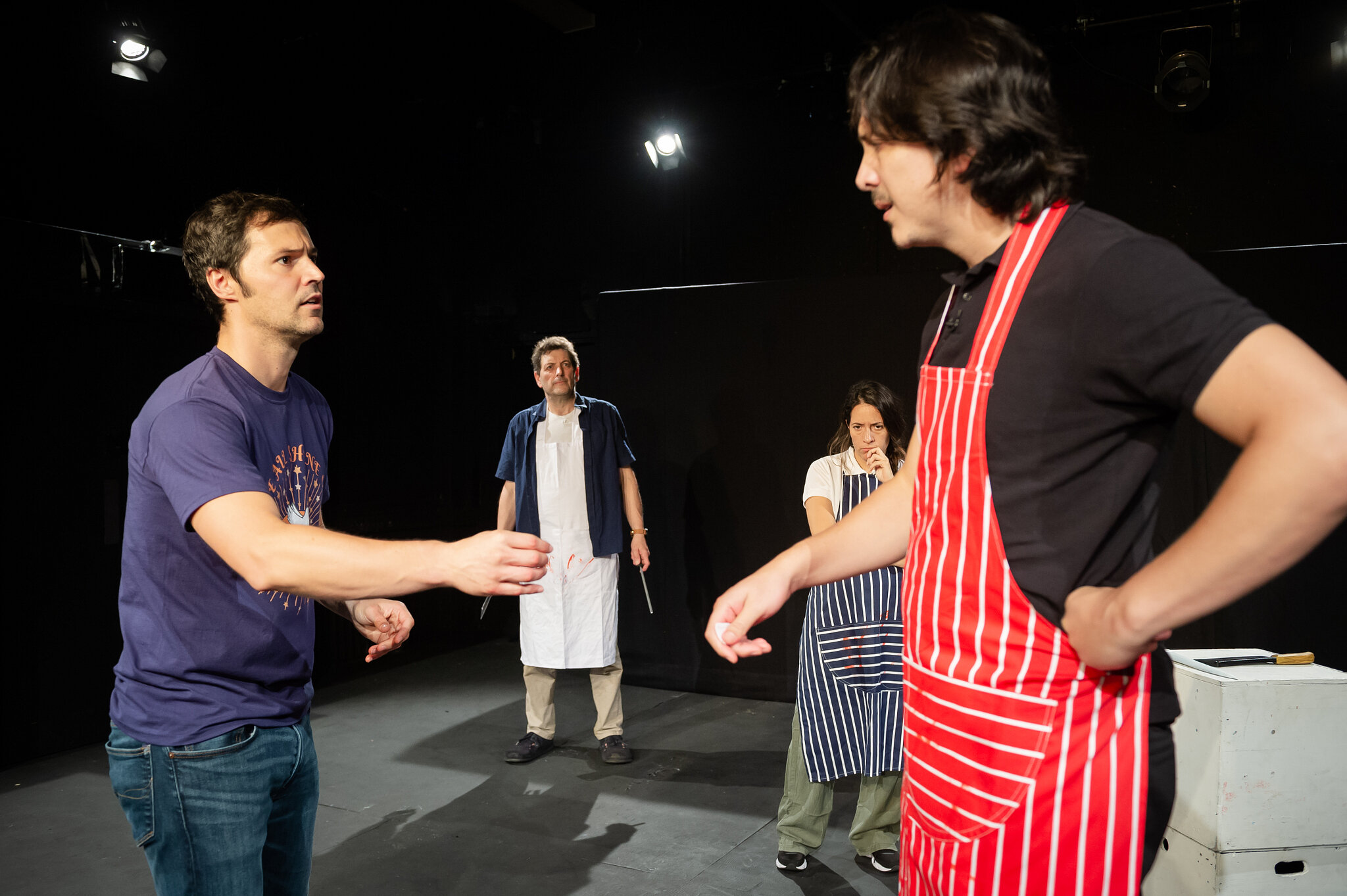
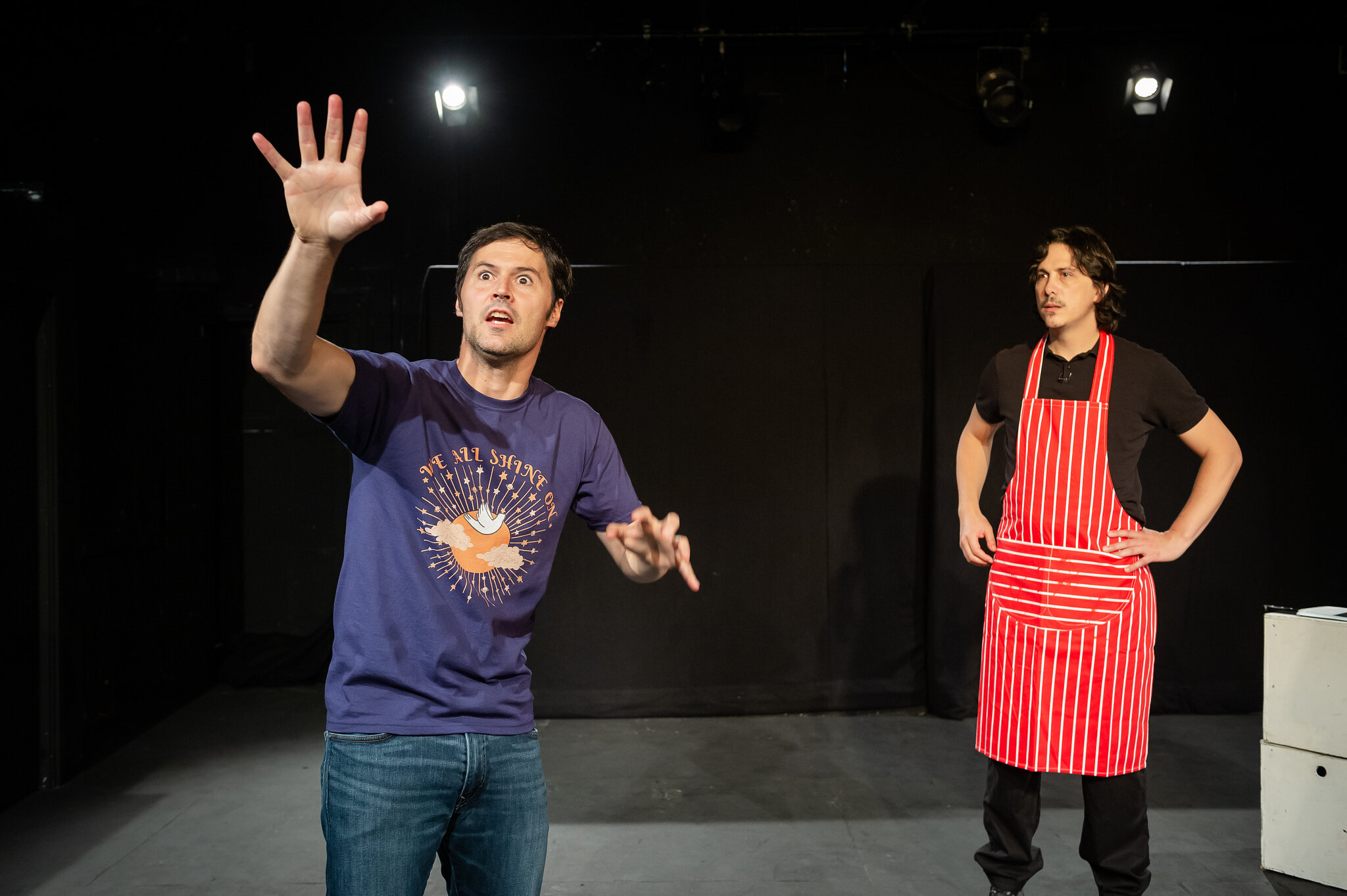
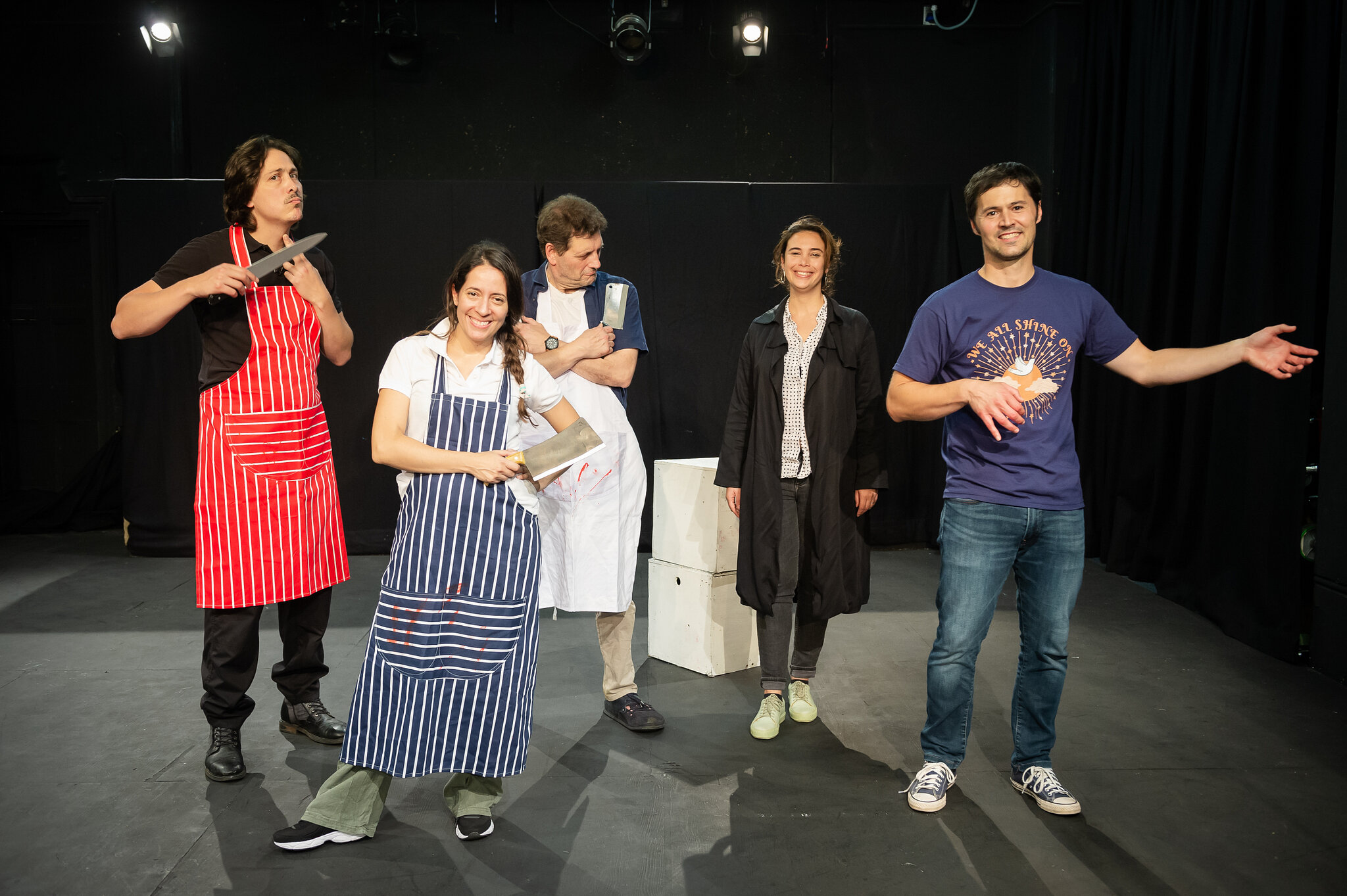
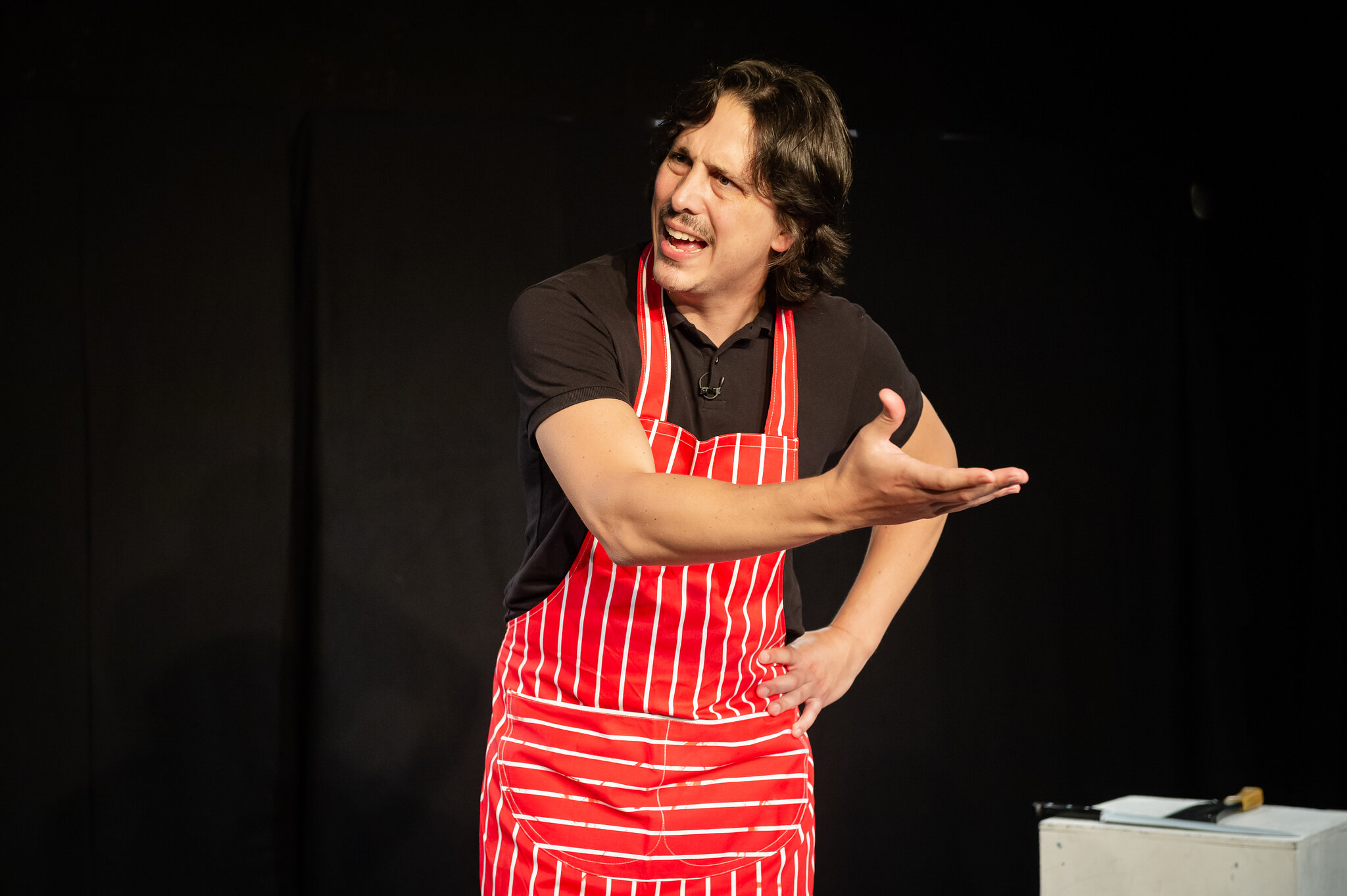
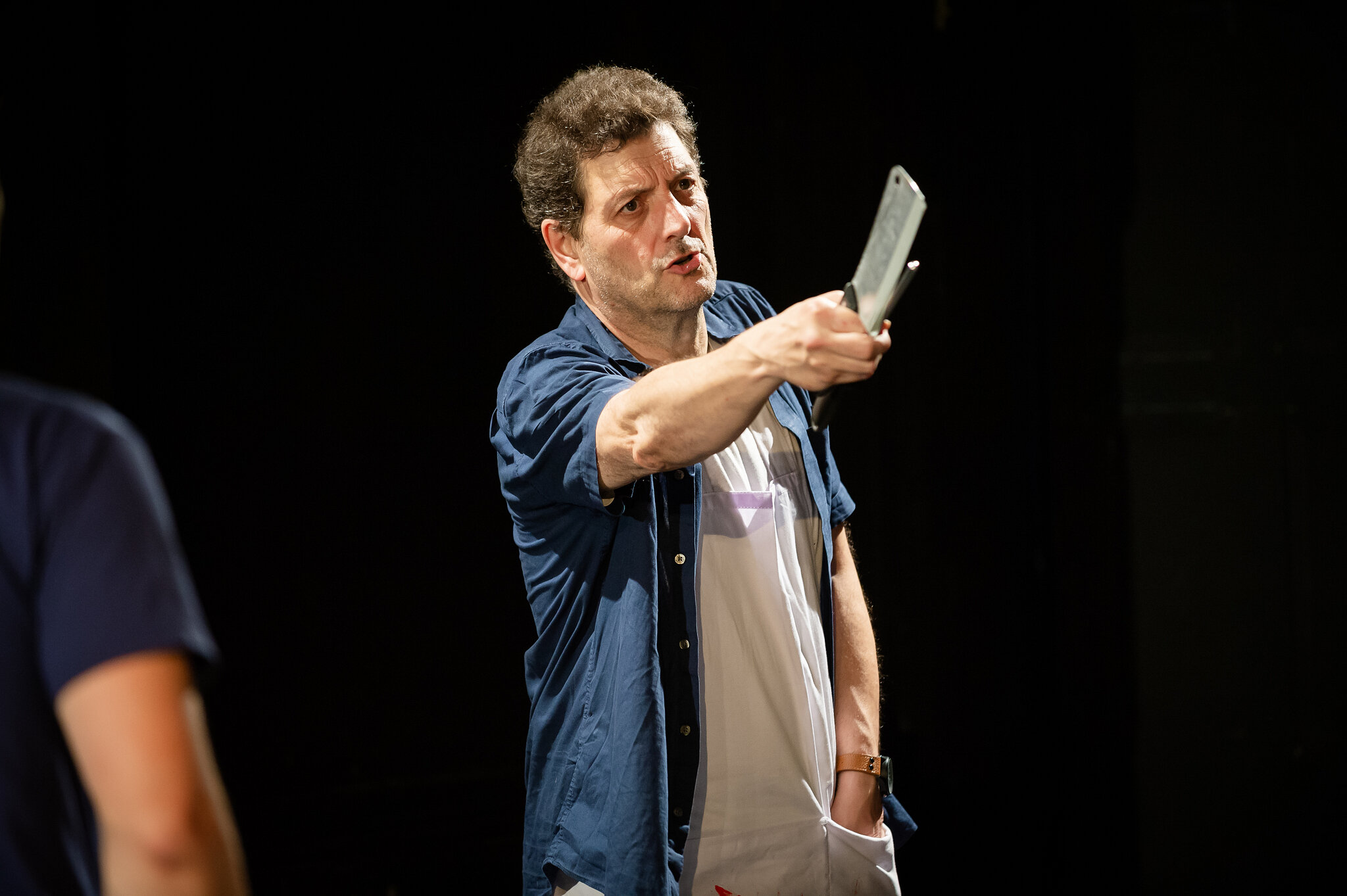
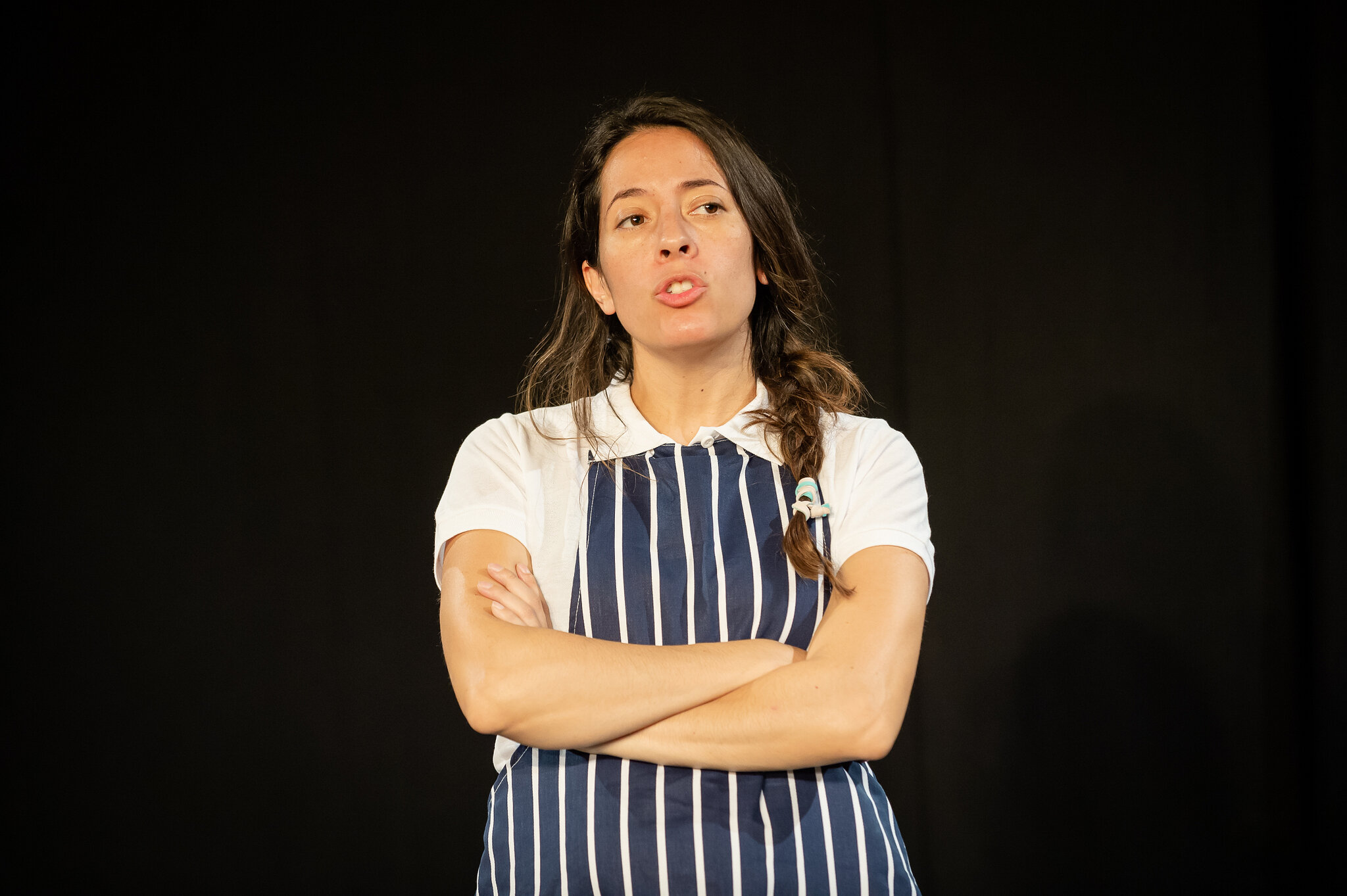
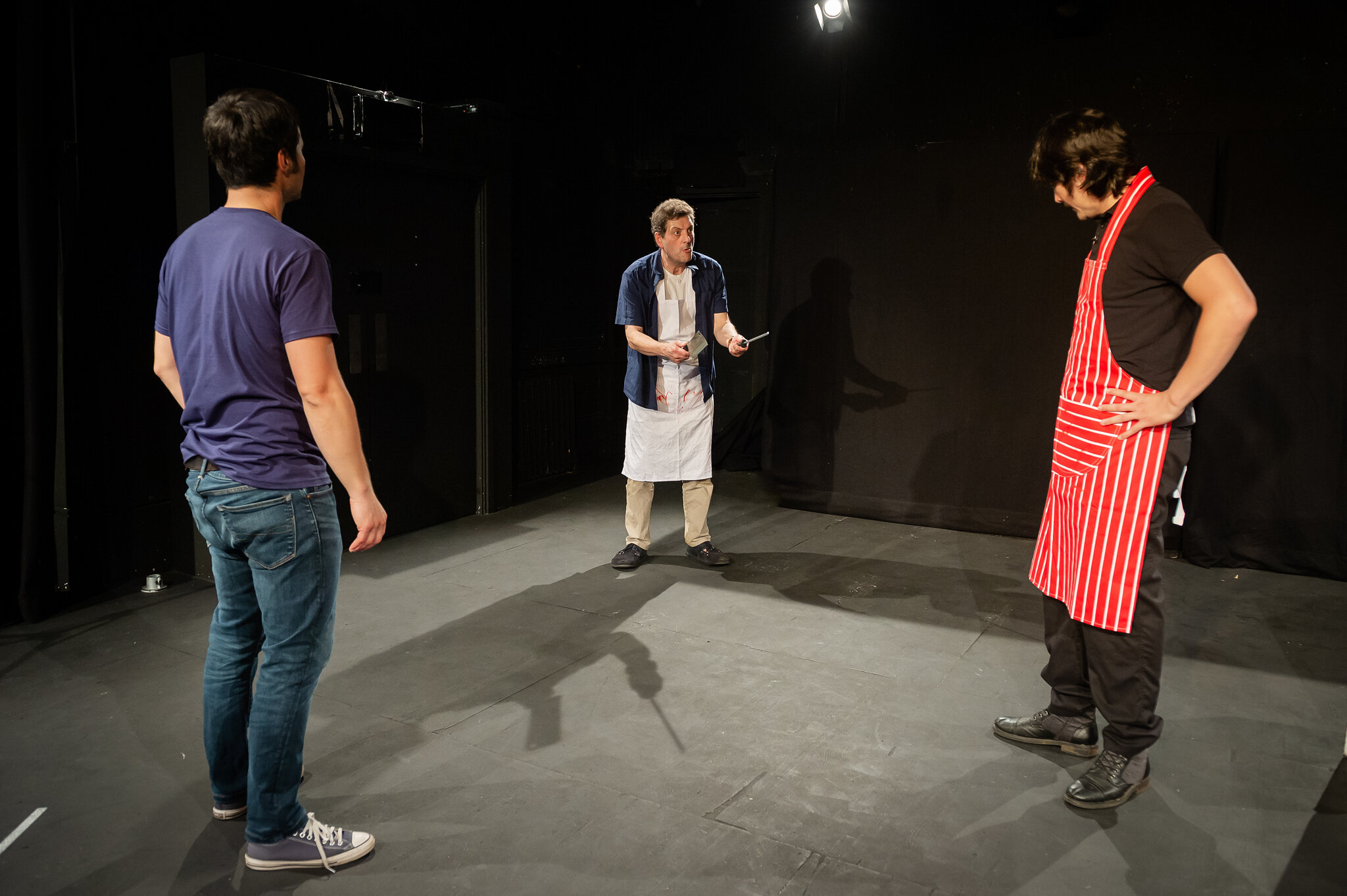
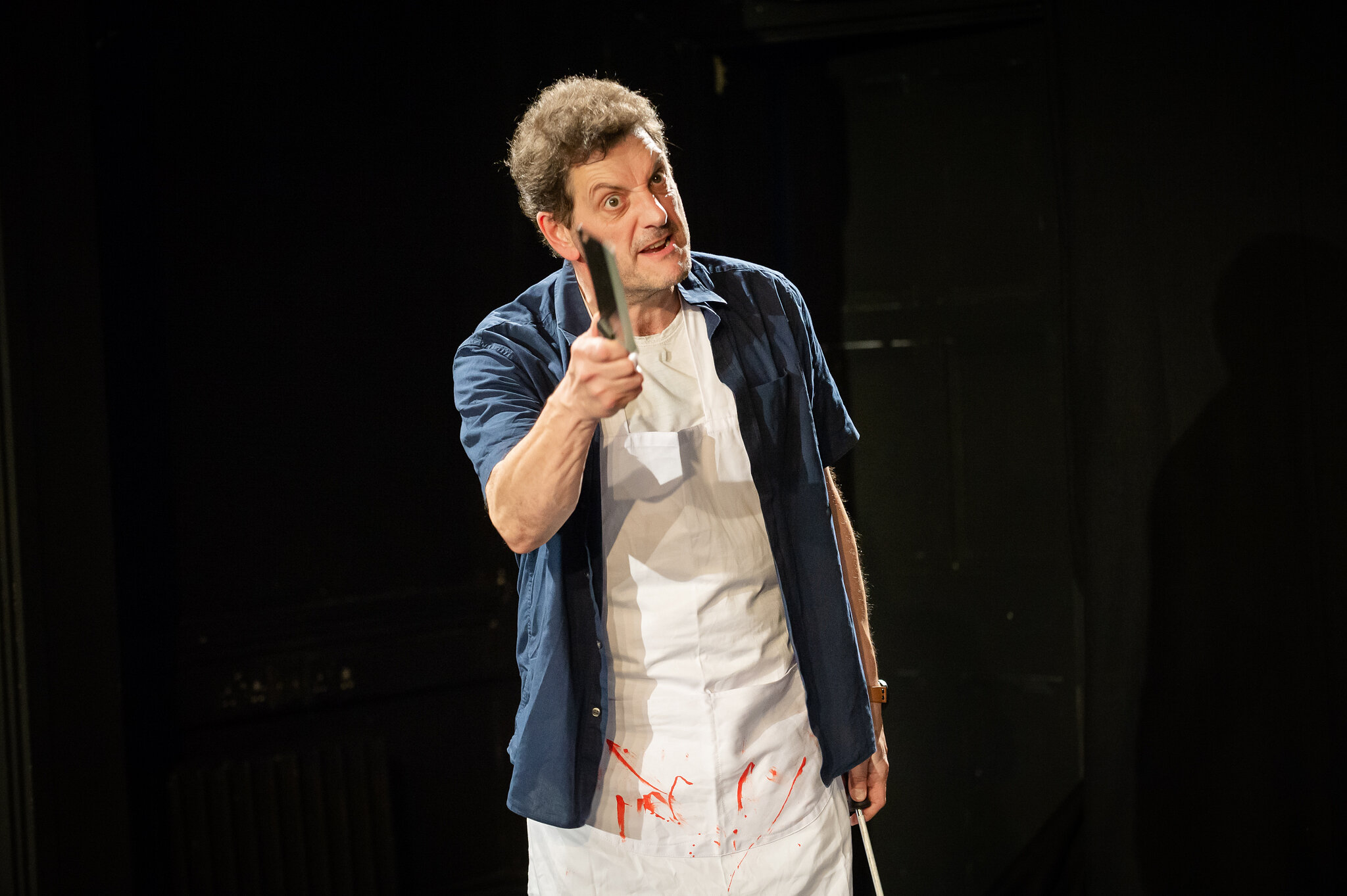
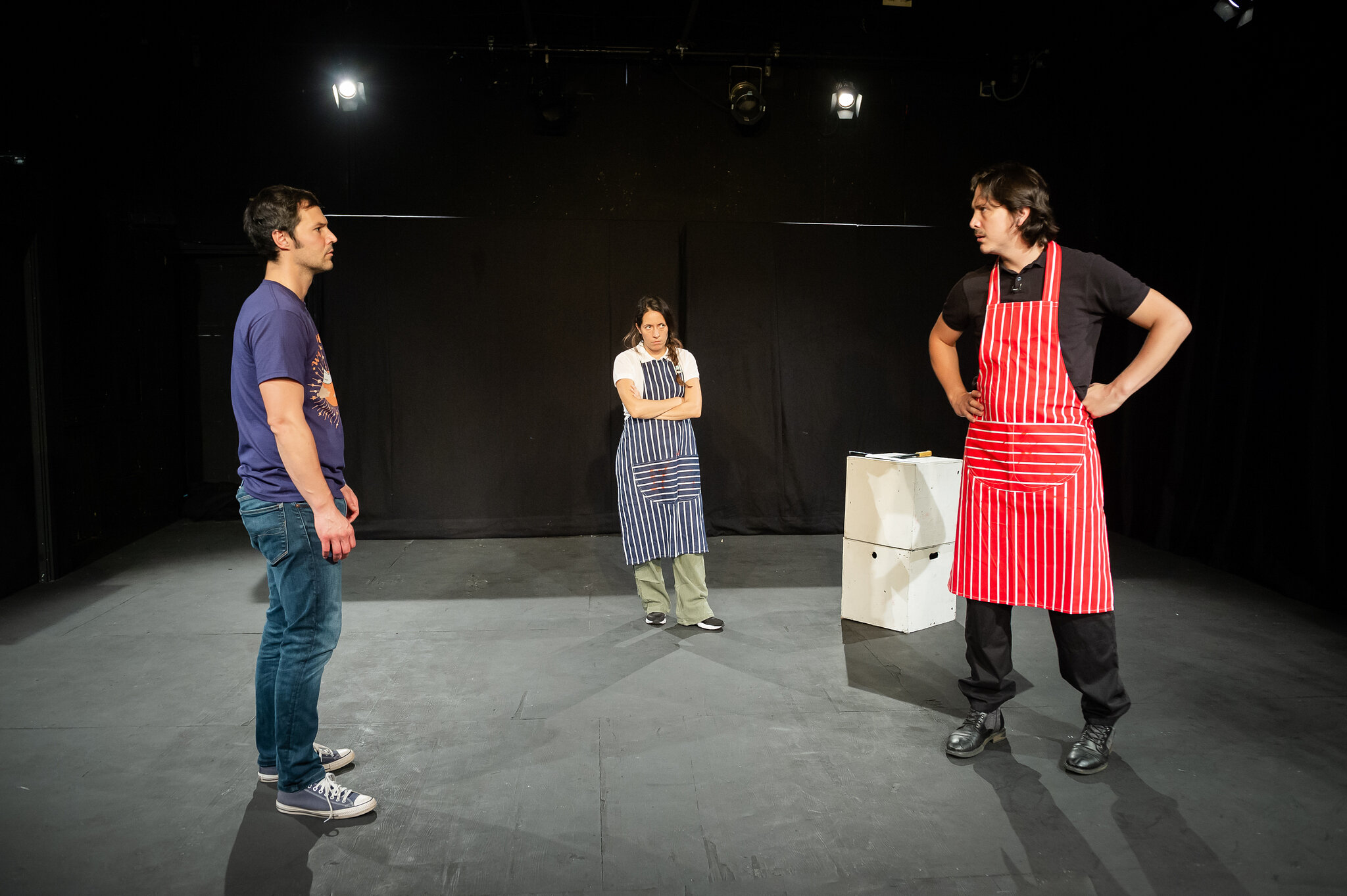
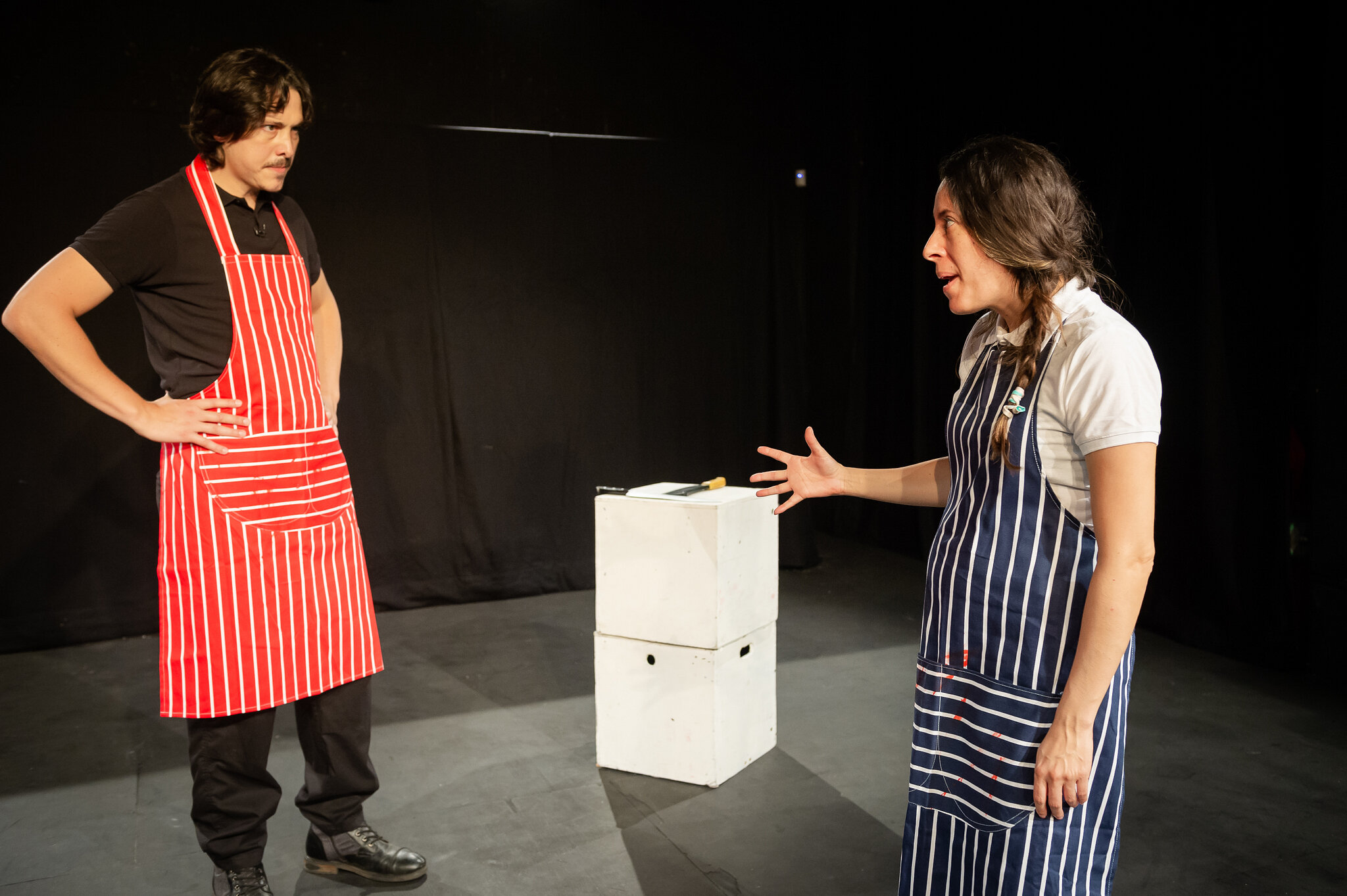
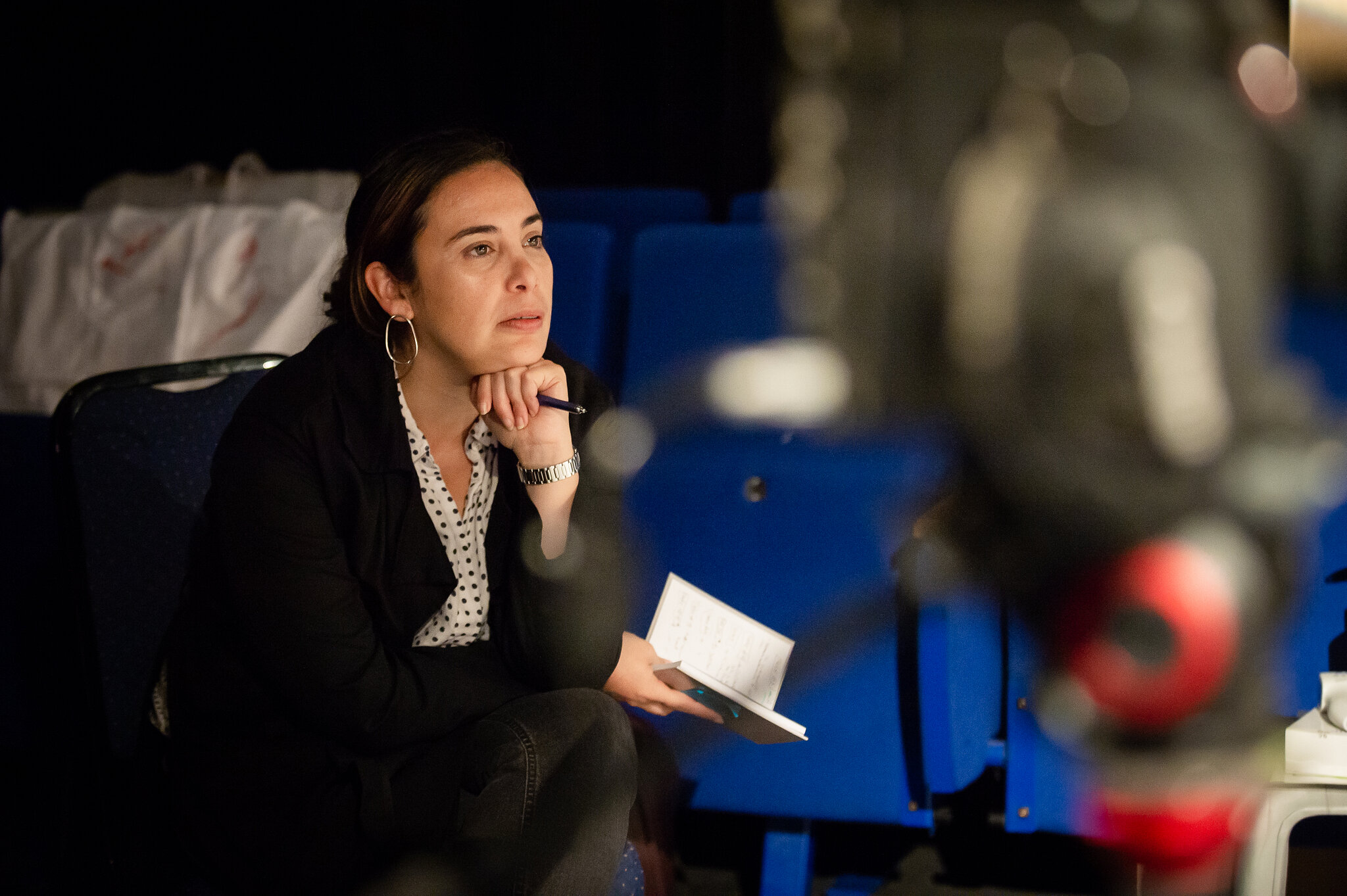
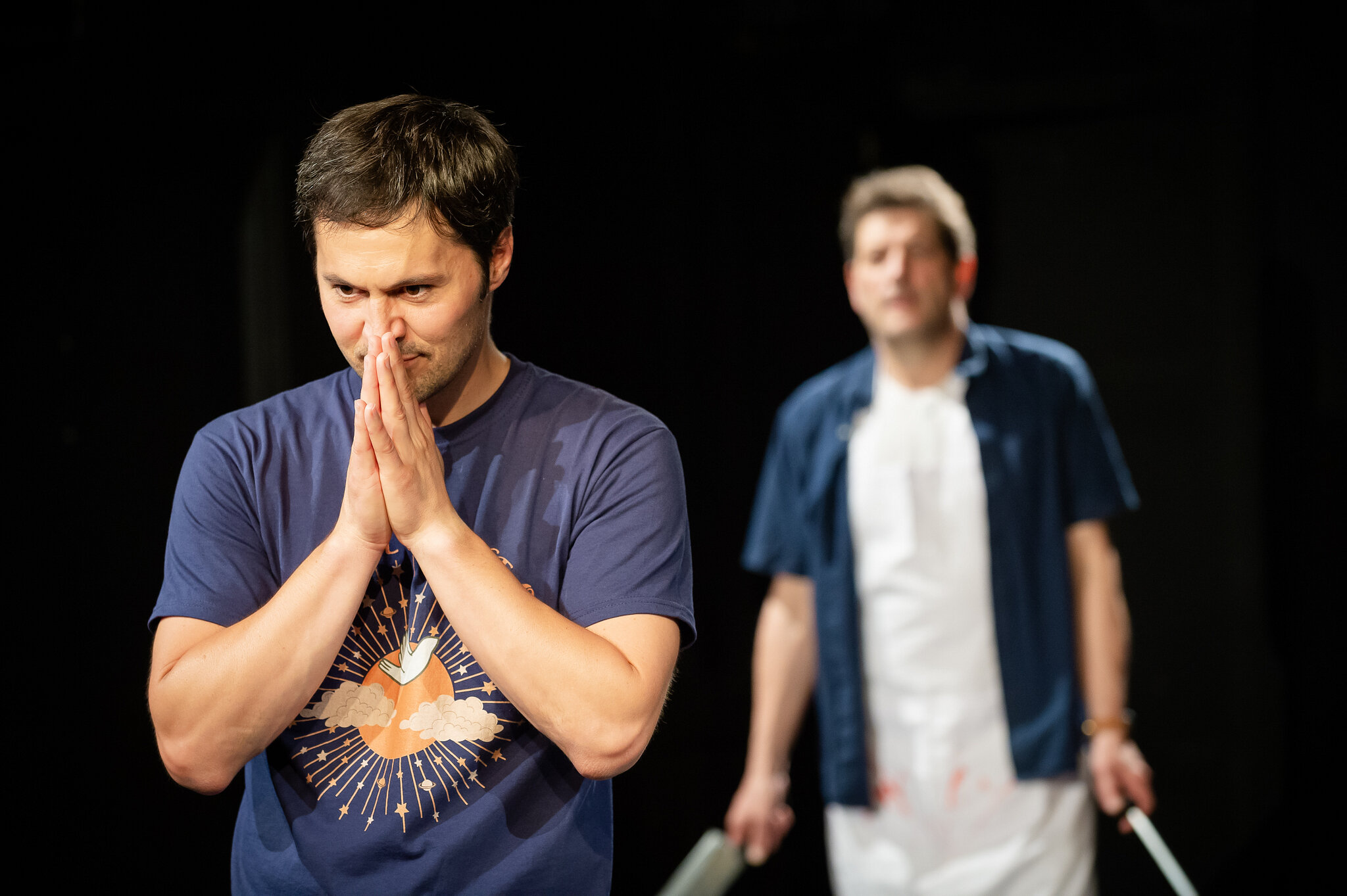
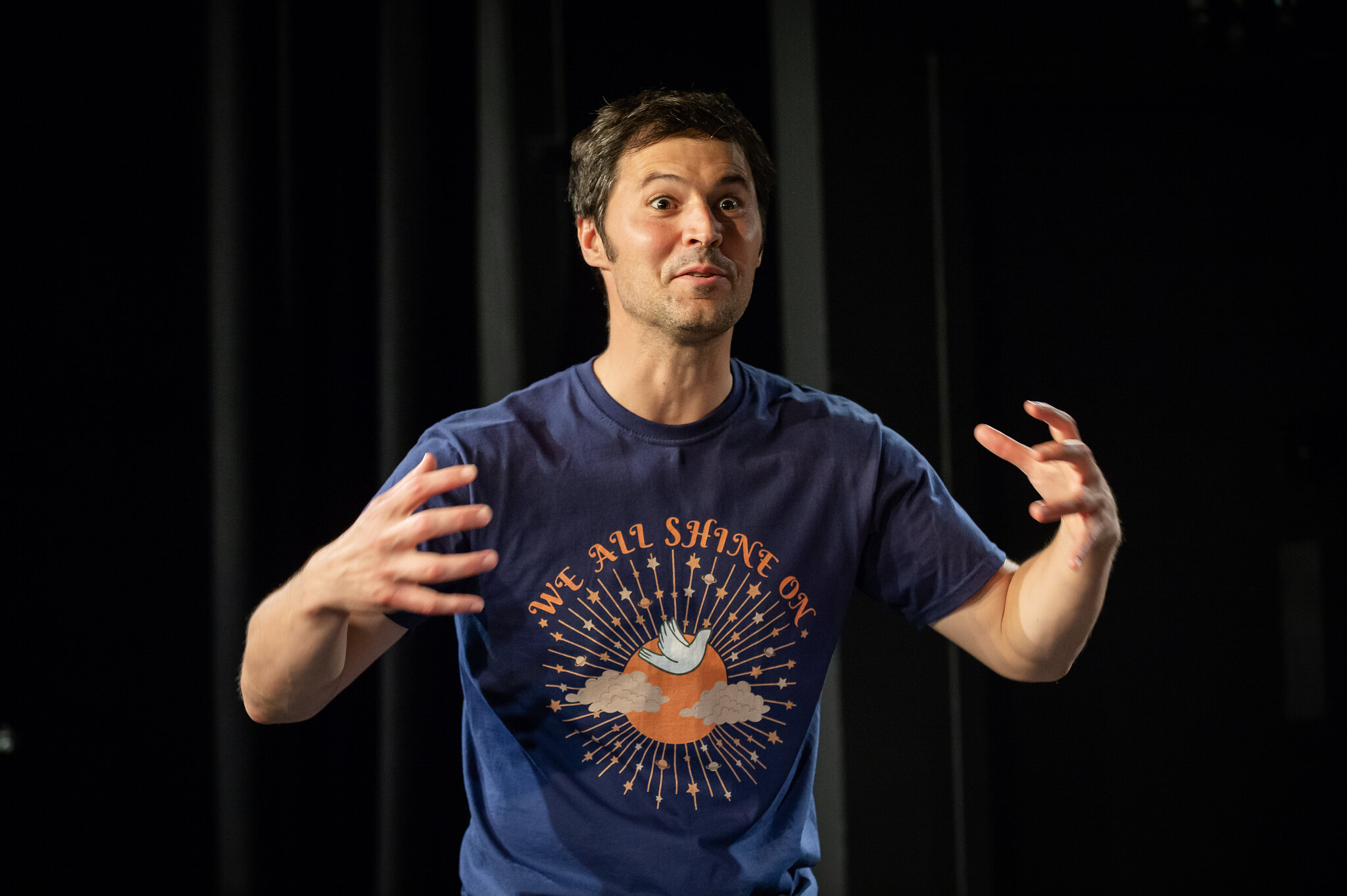
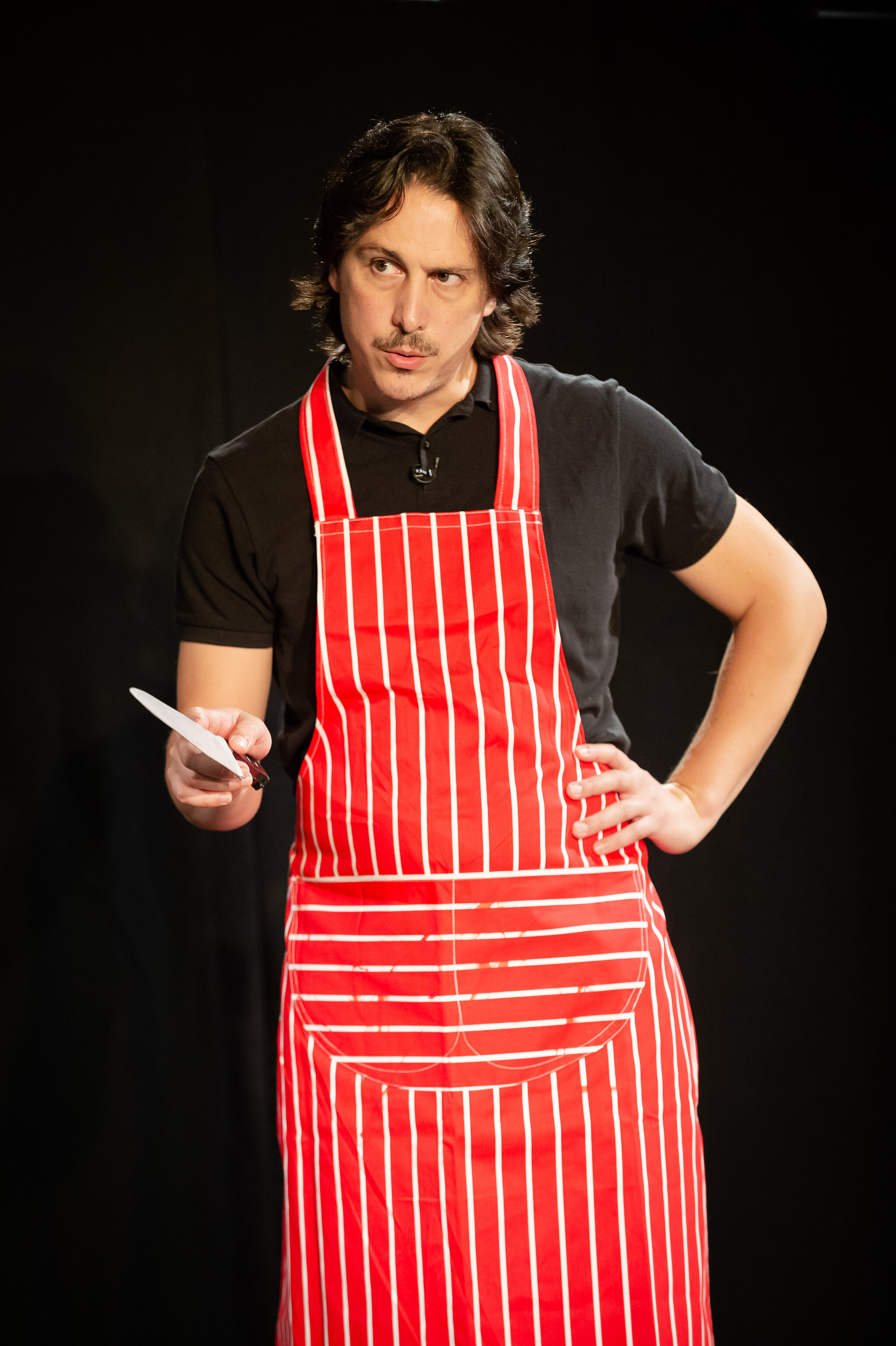
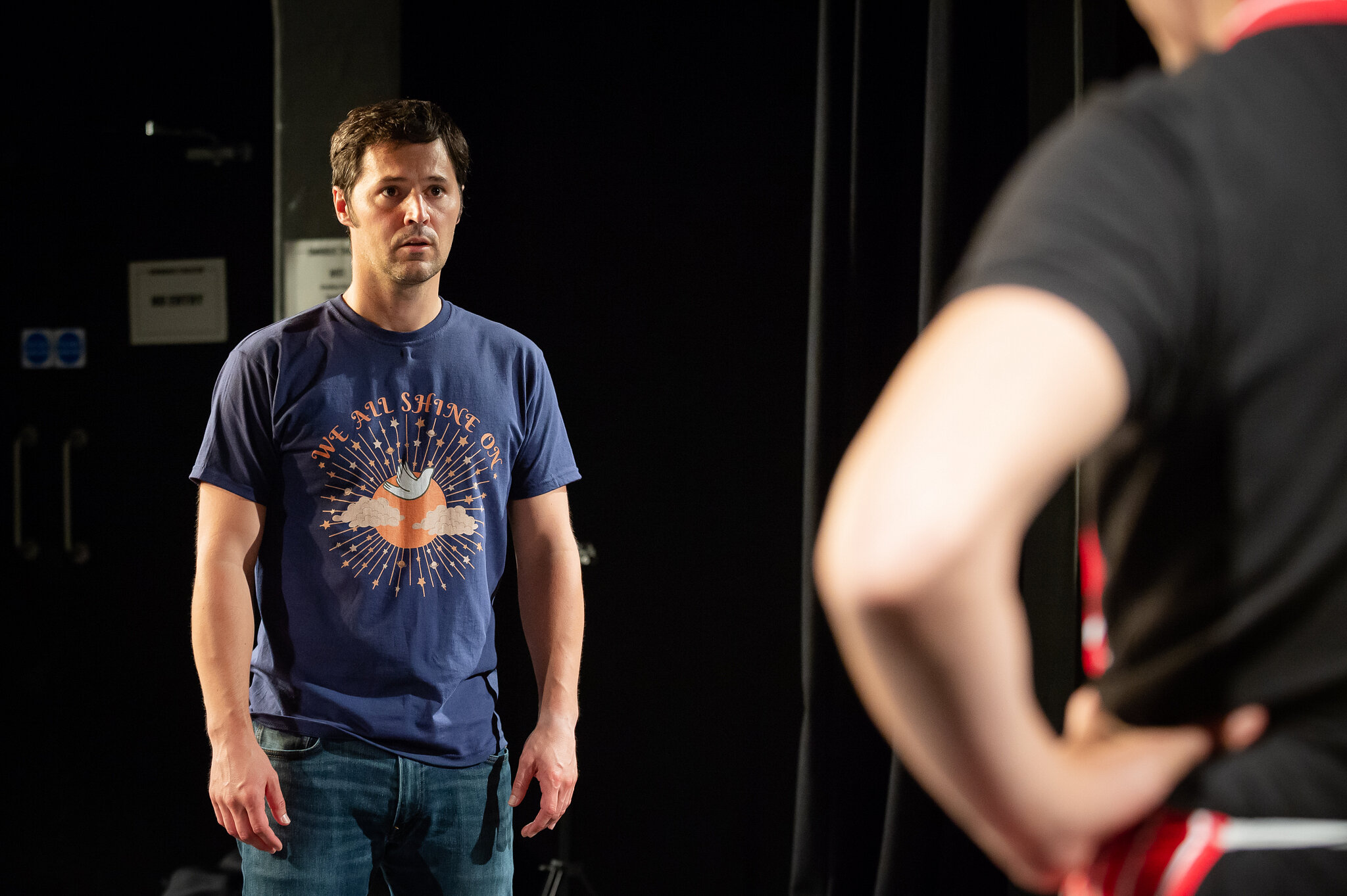
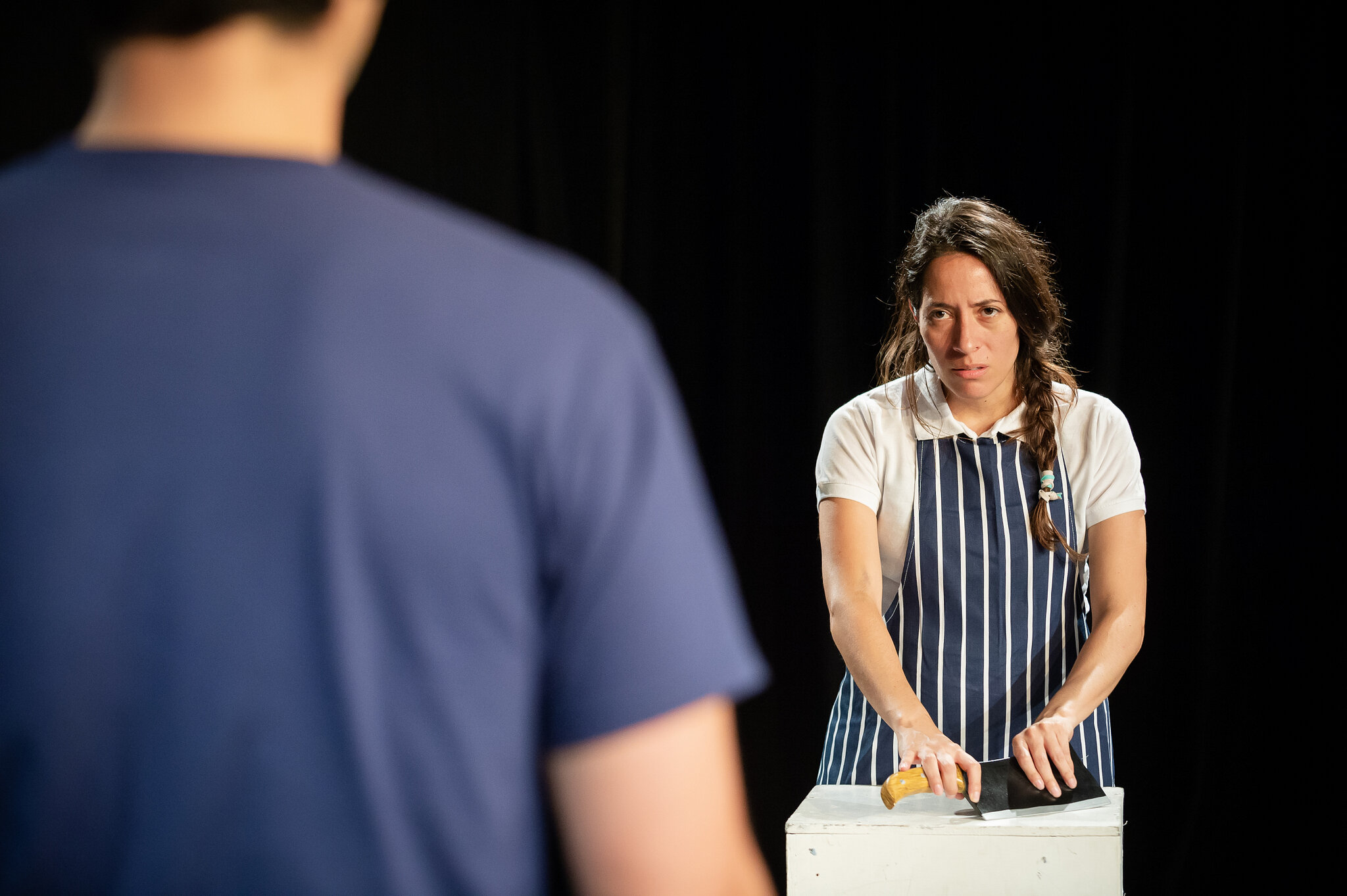
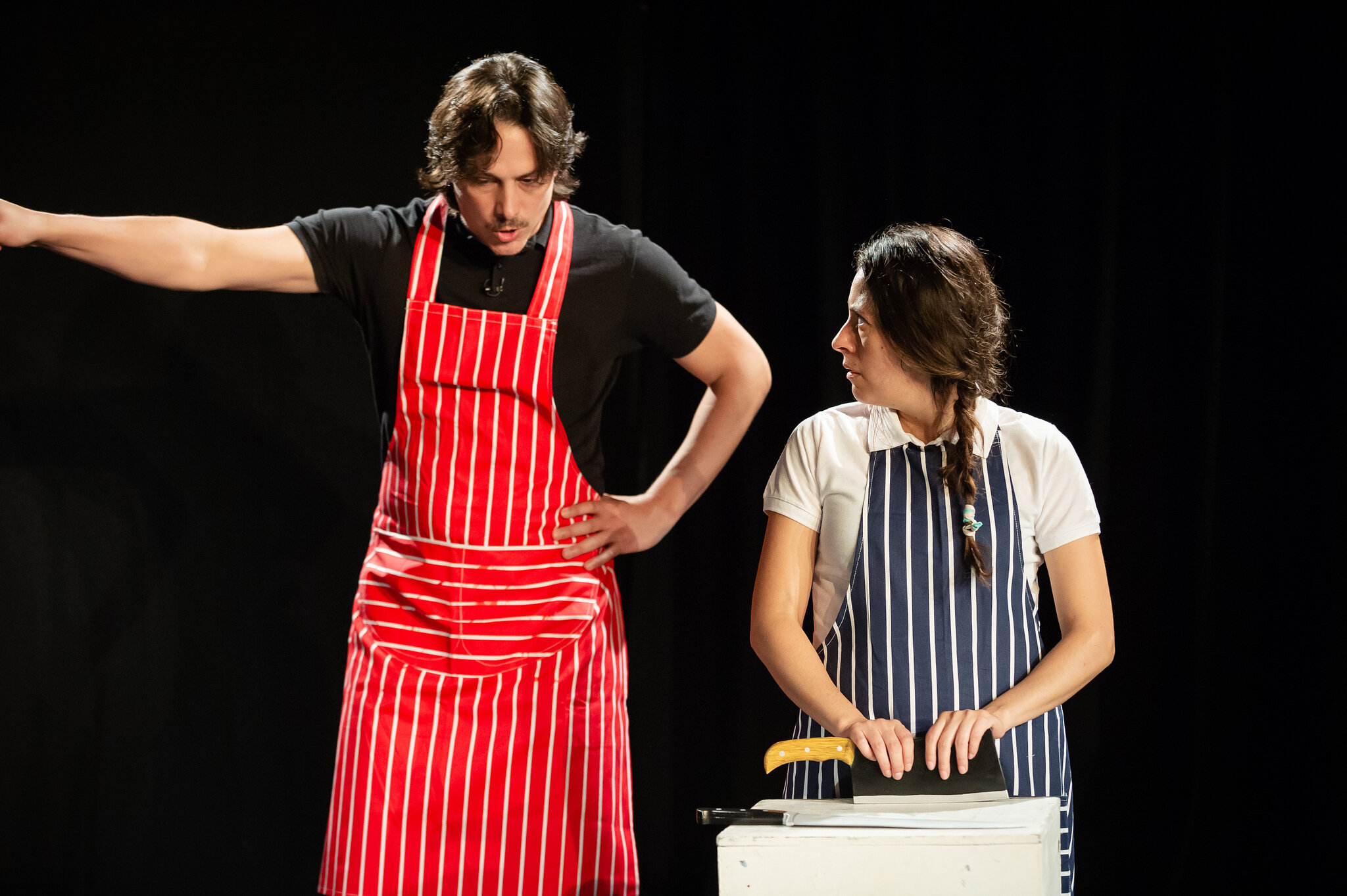
Translation 1 (English)
